Student left ‘in limbo’ by UEA for five months after alleged sexual assault

 Chris Matthews Editor-in-Chief
Chris Matthews Editor-in-Chief
An undergraduate who said she was sexually assaulted after an A-List club night claims she was left “ in limbo” for five months before the university investigated her complaint.
Amy Cooper*, said she was sexually assaulted by a fellow student after a night out at the LCR in September 2018. She had returned to her boyfriend’s house and had fallen asleep before being woken up to a man touching her. She immediately phoned her housemate, who came to collect her.
She said the attack left her feeling “used — like I wasn't really a person”. She added: “I was just an object.”
Amy struggled with her mental health in the months following the alleged assault and told a university lecturer she was “traumatised” in an email sent seven months after the incident.
The university said it was reviewing its processes for when incidents were reported and how it supported students.
But Amy said she was suffering “debilitating anxiety pg3
Continued on

25 February 2020 Issue 374 The official student newspaper of the University of East Anglia | concrete-online.co.uk Striving for truth Est. 1992
Interview: Asher Minns
'There’s far too much concern about
climate
scepticism'
pg12
Grey skies and blue dragonflies
Jess Barrett Deputy Editor
This last week has been do something different week and campus has been heaving. I had the exciting opportunity to make solder a blue glass dragonfly on Friday. It only took 40 minutes but is something that I will treasure forever. Now that my time at UEA is coming to a close, I’m keen to make as many memories as possible. The stained-glass making workshop provided an excellent opportunity. Something that I have missed doing at university is being creative and making things with my hands, I used to knit, crochet and sew and I’ve not really made anything since doing my undergraduate course. Becoming crafty again is something I’m really excited for once I graduate. I want to make soap, candles and cakes and leave the essay writing to the side for a while…
Strikes should affect research, not students
Chris Matthews Editor-in-Chief
Yesterday was the first meaningful day of lecturers’ strikes as part of industrial action that will last 14 days over four weeks. I say meaningful because this was actually the third day of strikes, the first two falling in UEA’s reading week. I’d like to make something clear. Lecturers at UEA are striking owing to the suggested unsustainability of lecturers’ pension scheme as well as owing to pay, equality, universities’ failure to deal with casualistaion, and workload. These are all major issues that need answers. And yet there’s a problem here.
The problem isn’t with staff striking, it’s with whom those strikes are affecting.
This industrial action affects students, and final year students especially. Suddenly people heading towards summative and dissertation deadlines may be without their seminar leaders and lecturers, which in turn may affect their overall mark. Now of course, the examinations board may take this strike action into account. They may even shift grade boundaries to excuse marks dropped owing to the strikes. But also, they may not. It may be that the examination board decides it should not change the boundaries. After all, too many first class degrees have been handed out in recent years, why risk lowering boundaries and prompting another wave of questions from the general public?
The issue with targeting classes, and
in turn students, is that it’s a method lecturers have tried, tested, and found not to work. Similar strikes took place in 2018, and now here we are again.

We’ve already paid the university our money. Sure, we could ask for compensation – many UEA students already are – but that’s subject to a barrel-load of red tape. The fact students are not having classes doesn’t seem to affect the university’s position in terms of lecturers’ pensions. Maybe it should, but that’s not the point. What the university relies on to uphold its reputation nationally and internationally, and in turn to prompt more students to apply to UEA, is research. Take that away and I reckon you have a fairly grumpy university. Many lecturers may enjoy their research more than their classes, but if they really want to prompt a change, they must shift tactics. Targeting research is only a suggestion, but what we do know is that targeting students and our classes has not solved much in the past.
This issue is one of our best yet.
I’m especially pleased with the photograph on the front page. Our Lead Photographer Harry Chapman has captured UEA in a very solemn light. I’m not sure whether you can call it the golden hour of rainy days, but it’s definitely close. I believe the photograph reflects well on the story we’re leading with. It is a very serious news story, and it’s something we’ve been working on for a number of months. As with every article we publish, I hope this one will prompt a degree of change. Moving on in the paper, we have
everything from Deputy Editor Jess Barrett’s feature on foundation years (p.10) to Travel Editor Sam Hewitson’s article ‘The digital nomad dilemma’ (p.20).
This is our ninth issue of the year and it is definitely time to mention Venue’s fantastic original artworks that Venue Editor Ellie Robson and her Deputy Amelia Rentell have commissioned. We had a good talk about it on our awardwinning Livewire show ‘A Week in Concrete’ last week (tune in every Tuesday at 5pm). This week’s cover is a delightful lino print of the Zigguarats by Maia Brown. From News and Features to Science and Travel, we’ve got you covered, and remember it’s not too late to join Concrete! We’re always on the lookout for writers, photographers, and general tech whizz-kids to join us! You can scan the link below to become a member.
Speaking of essays, the majority of my peers are drowning in summative and stacking their library books in towering piles. We’re relying on coffee kicks and naps to keep us motivated, who know how long it will hold up? Campus has been hit with a large case of pathetic fallacy, storms Ciara, Dennis and Ellen have been wreaking havoc and have left campus in a dreary and depressing state. As I said in my pervious editorial, I’m very much looking forward to when the skies brighten up and the wildlife returns to campus. UEA at spring is my absolute favourite time of the year.
As I’m sitting here writing this, the media office is buzzing with editors laying up their sections, I’m excited to see how they turn out – we’re in for a very exciting issue as our writers try to cram in pieces they hope to be nominated in the Student Publication Association National Conference awards. Fingers crossed Concrete has a bountiful year.
concrete-online.co.uk

The University of East Anglia’s Official Student Newspaper since 1992
Tuesday 25th February 2020 Issue 374 Union House University of East Anglia Norwich NR4 7TJ 01603 593466
www.concrete-online.co.uk
Editor-in-Chief Chris Matthews concrete.editor@uea.ac.uk
Deputy Editor Jess Barrett concrete.deputy@uea.ac.uk
Online Editors Alec Banister and Jack Oxford concrete.online@uea.ac.uk
News Bryan Mfhaladi concrete.news@uea.ac.uk
Senior Reporter: Henry Webb
Global
Global Editor: William Warnes
Senior Writer: Piriyanga Thirunimalan concrete.global@uea.ac.uk

Features
Features Editors: Paige Allen and Leelou Lewis concrete.features@uea.ac.uk
Comment
Matt Branston concrete.comment@uea.ac.uk
Science Science Editor: Jake WalkerCharles concrete.scienv@uea.ac.uk

Travel Sam Hewitson concrete.travel@uea.ac.uk
Sport Sport Editor: Jamie Hose
Sport Senior Writer: Luke Saward concrete.sport@uea.ac.uk
Chief Copy-Editors Nerisse Appleby Reeve Langston concrete.copy@uea.ac.uk
ConcreteUEA
ConcreteUEA
Front page photo and cut out: Concrete/ Harry Chapman
Social Media

Delivery: Alethea Farline
Outreach: Chloé Johnson

Lead Photographer Harry Chapman
Editorial Enquiries, Complaints & Corrections concrete.editor@uea.ac.uk
Editorial 2 25th February 2020 No
of
newspaper
Published
the
of UEA
of
herein are those of individual writers, not of Concrete or its
team.
part
this
may be reproduced by any means without the permission of the Editor-in-Chief, Chris Matthews.
by
Union
Students on behalf
Concrete. Concrete is a UUEAS society, but retains editorial independence as regards to any content. Opinions expressed
editorial
Scan the code below with you phone to join Concrete!
Photo: Concrete/ Chris Matthews
Student left ‘in limbo’ by UEA for five months after alleged sexual assault

continued from front page
and depression” and “an overwhelming feeling of fear”, which had left her suicidal.
The university’s delayed response to her complaint was “a slap in the face”, she said.
Although Norfolk police investigated the incident and a man in his 20s was arrested and questioned, he was never charged.
Amy was told that during the police investigation the man said the incident was consensual, however, she said: “I don’t really know how someone can get consent from someone who is sleeping. I honestly feel traumatised and I feel scared walking around campus, thinking about whether he is nearby.”

Amy told UEA the police had concluded their investigation in an email on November 26, 2018, although she was unaware this was supposed to trigger the university’s
investigation. The university later said the reason for the five-month delay was that Amy had not informed the university, but emails seen by Concrete show she did.
In a statement, Norfolk police said no further action would be taken. Amy said she understood why as “it's just one person's word against another”.
The university paid Amy £1,000 in compensation — a university staff member said this was to save her “the additional inconvenience of having to make a formal complaint”.
Amy told one of her lecturers in an email that the impact on her mental health was “catastrophic” and she had to seek counselling and was prescribed antidepressants. She said she felt “severely let down by the justice system, and will continue to be let down by the university”. She added it made her “consider dropping out from the fear of having to see the student that assaulted me again.”
When the university finally did investigate, five months after Amy had notified them the police
investigation had concluded, they told her there was “insufficient evidence to establish” whether the incident had happened. She said she was told the man’s school of study instead asked him to write an essay on consent.
A university spokesman said: “The university takes all reports or disclosures of sexual misconduct extremely seriously, and all reports are thoroughly investigated. We are continually reviewing our procedures around disclosures of incidents and how we support students involved in these processes.”
The spokesman said they would
not comment on individual cases but added: “UEA has worked with uea(su) for many years on the Never OK campaign to create a culture of zero tolerance towards issues of harassment, and have also recently brought in the Report and Support site to allow anyone to report incidents or to directly request support from an adviser. "We’re wholly committed to implementing the recommendations of the Universities UK ‘Changing the Culture’ report, and we are also working with the Office for Students on their consultation on harassment and sexual misconduct in higher education.”
The university would not comment on what specifically they have changed to ensure a similar delay would not occur in the future.
But Amy believes UEA would make the same mistakes again if a similar situation arose.
“I feel like since all this has happened I just have no trust in anyone who's meant to look after you. Like the police or the university or just anyone,” she said.
She added UEA likes “to
pretend” they look after students. “They put posters up around the uni saying 'it's never OK'. But it clearly is okay.”
She said: “What makes it worse is was people coming up and saying, 'the police didn't do anything, so obviously he didn't do anything then', and, 'the university didn't do anything, so obviously nothing happened’.”
She added: “I just don't want it to happen to anyone else. I think it's just been such an awful experience that's been made even worse by people not having proper regulation or procedure.”
Names have been changed.
If you have been affected by a similar incident or know someone who has you can contact STS by calling 01603 592761, emailing studentsupport@uea.ac.uk. You can also visit reportandsupport.uea.ac.uk Alternatively you can contact Samaritans on 116 123 24-hours a day or email jo@samaritans.org
YoucanalsocontactTheSurvivors Trust on 08088 010 818 or visit their website: www.thesurvivorstrust.org.
3 NEWS 25th February 2020 concrete-online.co.uk/category/news/ | @ConcreteUEA
Chris Matthews
Editor-in-Chief
“I just don't want it to happen to anyone else”
Photo: Concrete/ Harry Chapman
A third of students use loans to pay rent
Bryan Mfhaladi News Editor
The National Student Accomodation Survey 2020 found that a third of undergraduates are using loans, overdrafts and credit cards to pay rent at university.

The survey was conducted from December 2019 to January 2020, and 2,168 students in the UK were polled, with 1,563 of them being undergraduate students.
The survey also showed that 60% of these students were using monetary aid when sources include family, friends and employers. In
addition to a third of the surveyed using credit to pay for their rent, 1 in 3 of the surveyed also feel their
One person interviewed by SaveTheStudent said: “I owe almost £3,000 on overdrafts, plus £800 on a credit card (at around 30% interest). All of this was to pay rent in shared houses.


The survey has shown that students spend an average of £126.42 a week on rent, with the average Maintenance Loan award at just £540 a month for rent and living costs.
Jake Butler,
forced to borrow to keep a roof over their heads, and without being warned about the impact debt may have on their wellbeing and future finances.
Students should be able to focus on studying, and not on trying to climb out of a debt spiral caused by shortsighted student funding and overpriced rents.
accommodation is poor value for the money they pay.

“I took a Smart-Pig loan for £200 to pay rent in my 2nd year. In the 3rd year I got a credit card, and put about £400 on it. Then I had to open a second overdraft.”
money expert for Save the Student, a money advice site, said that the survey highlights the problem with student funding. He adds: “This discovery that so


The Maintenance Loan isn't enough to live on and, evidently, most of it goes to landlords. The system is long overdue government[al] reform.”



In a poll we ran on instagram, we found that 89% of UEA students who commented say that they have not used any form of credit to pay for their rent and 11% of them have used a loan or credit to pay for their rent.
A UEA student, who has chosen to stay anonymous, responded said: "I maxed my credit limit to £3,000 across my second and third years at UEA. I also maxed my overdraft to £3,000.
I understand that this paints a picture that I was careless with money but it's quite the opposite as I received minimum student finance in my first year, which left me in a constant deficit despite working two jobs. Even when I was struggling, I could not ask for money from my parents as they were barely making enough to cover the cost of living, contrary to the belief that minimum loan meant you have rich parents.
many students are risking serious debt in order to just pay for student accommodation is worrying.
“It's unfair that students are
So, I have £6,000 of external debt despite working throughout my entire degree and living off of around £30 a week."
News 25th February 2020 4
£3,000 on overdrafts, plus £800”
11% of UEA students has used loans to pay for rent
89% UEA studetns Have not used Loans to pay for rent
“I have £6,000 of external debt despite working throughout”
Photo: Save The Student
Photo: Piqsels
Student climate change movement is growing
Henry Webb News Senior Reporter
Last Friday was the first anniversary of the start of UK protests in the Fridays For Future movement, started by Swedish student Greta Thunberg.

Since last year, the movement has grown significantly, with protests regularly occurring in cities across the UK, including Norwich.
Last week’s strike saw thousands of students take to the streets, with several hundred here in Norwich, supported by parents
centre, ending at the Forum. Here a number of speakers from different environmental groups, including Animal Rebellion UEA, discussed their reasons for getting involved with the strike.
Students hope to use these demonstrations to raise awareness of the climate and environmental emergency, and put pressure on politicians to take action.
UK Student Climate Network (UKSCN), which is made up of the groups organising strikes in the UK, have four demands for the UK government:
- Save the future: create a green new deal to reach net-zero carbon by 2030.
- Teach the future: reform education to communicate the urgency of the climate crisis.
- Tell the future: communicate the same message to the general public.
and other environmental groups, like Extinction Rebellion and Greenpeace. The strike also took place in 3000 towns and cities in 150 countries worldwide.
In Norwich the strike started with a march through the city
- Empower the future: reform the voting system with proportional representation and lower the voting age to 16. Groups worldwide share similar goals, and have the strikes have no doubt had a significant impact on public perception and awareness of this issue.
As incidents like the Australia wildfires draw attention to the severity of the situation, protesters hope politicians will wake up to the reality of the climate crisis and
Universities accused of 'silencing' students
Ellie Robson News Reporter
Up to a third of UK universities have used ‘gagging’ clauses to prevent their students going public with complaints ranging from sexual assault, to poor teaching since 2016, according to research done by BBC.
“300 university NDAs have been used since 2016”
Students have felt pressured into signing non-disclosure agreements (NDAs), a move which Universities UK, an organisation which represents 136 higher education institutions, have said should not be used to silence students.

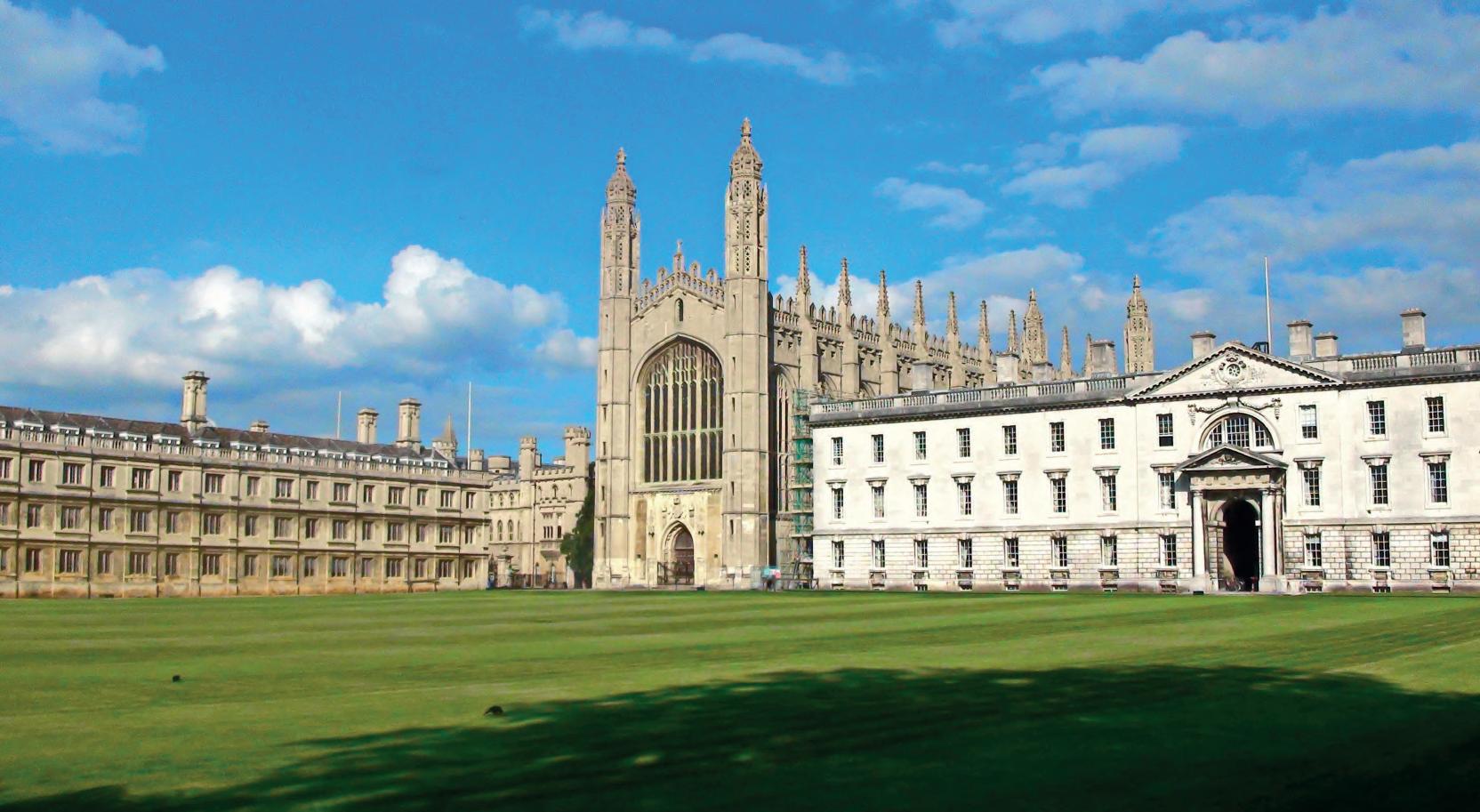

A Freedom of Information request by the BBC has found that 300 university NDAs have been used since 2016, and that 45 universities have made pay-outs ranging between £250 and £40,000 per individual.
An investigation by The Guardian in October 2018, revealed that nearly 300 academics had been accused of bullying in a UK
university.
Data reveals that not every student who signed an NDA received compensation, but the reasons behind this are unclear.
Victims of sexual assault have been treated the worst at some universities, with one student signing an NDA that stated that, although it would provide limited
protection against her attacker, she would be expelled if she talked publicly about her experiences. Another student, who studied her undergraduate degree at the University of West London, overdosed after being told that there wasn’t enough evidence to prosecute another student who had sexually assaulted her.
The student reported that she was offered no support when she returned to her studies, and has evidence that staff actively discouraged other students to reach out to her.
A lawyer who specialises in sexual assault cases has labelled the use of NDAs on students as ‘unethical’, and reassures students
that they are unlikely be legally forceable.
Universities UK concluded their response to this news by stating that, “every student should feel safe and supported through their time at university and this includes feeling empowered to speak out if they have concerns”.






News 25th February 2020 5
Photo: Geograph
Photo: Piqsels
“300 university NDAs have been used since 2016”
Government to introduce T Levels
Ellie Robson News Reporter
More than 5,000 post-GCSE qualifications with a low student intake are to lose funding, as the Department for Education readies itself to release new T-level courses in September of this year.
This amounts to 40% of the 12,000 post-16 qualifications that are currently available in England.

T-level courses are qualifications that can be taken after GCSEs and are equivalent to three A-levels. The courses have been created in







learning and practical experience to educate their students, and will be graded using the distinction pass system.
It looks like students will soon be facing three options when they have obtained their GCSE qualifications: pursuing A-levels, T-levels, or apprenticeships, and it is argued that the reduction of courses with low enrolment will allow for funding to go towards more popular courses.
However, the head of qualification provider City and Guilds, has remarked that this narrowing down of options will be, “disastrous for social mobility”.
There is additional concern that qualifications that are aimed pupils with learning or physical difficulties are being cut, as well as a course which is designed to build the confidence of students who struggle with academia.

collaboration with businesses, and as such ensure that students will secure the skills that they need to progress in their chosen career path.
T-levels will use both classroom


The City and Guilds chief executive has determined that many students will not be able to

25th February 2020 6 News
+
lgbt
history month take part with pride uea.su/tickets
“We urge the government to think carefully”
Photo: Pxhere
Civilians under threat as Yemen conflict continues to escalate
Piriyanga Thirunimalan
Senior Global Writer
Having been devastated by civil war since 2015, Yemen is currently the world’s largest humanitarian crisis. The country has been constantly dependent on international aid since the outbreak of war, with 80% of the population relying on aid according to the BBC.
The Houthi rebels however, who control large regions of the country, including the capital Sanaa, had declared that they would be imposing a 2% tax on all humanitarian aid. The presence of the Houthi rebel group has
prevented and delayed humanitarian aid, and has threatened the work of humanitarian agencies in multiple instances. Further imposing levies on international aid would allow the rebels to gain control over what is one of the world’s largest humanitarian operations.
However, in a letter written on the 14 February to UNofficial, Mark Lowcock, the leader of the Houthi aid body confirmed that the tax will be dropped for the year 2020.

This decision was made a day after a meeting was held in Brussels by aid agencies, where the statement was made that Yemen had reached breaking point, and warned
would be reduced in areas where distribution was interrupted.
The conflict which divided the country is fought between the
such as the UAE, Saudi Arabia and the US.
The country was already one of the poorest Arab countries prior to the war, and the conflict has exacerbated poverty and dependence on aid.
The UN had estimated civilian deaths at around 7,500 by September 2019, and both sides have been accused of committing serious war crimes.
humanitarian organisations to consider pulling out of Yemen, and the UN has condemned the USbacked coalition for the air raids which killed as many as 31 civilians on Saturday.

The government forces attempted to justify the deaths as, ‘collateral damage’ during a ‘search and rescue operation.’

Houthi rebel group, who forced President Abdrabbuh Hadi out
Although the Houthi decision on Friday to relieve taxes on aid was seen as an ease of tensions, a series of air raids were carried out the following day by the Saudi-UAE coalition.
Five years have passed since the outbreak of war, and although the country is split into territories controlled by opposing sides, the poverty, fear and destruction they experience is rife under both occupations, and serious war crimes continue to be committed
Bernie Sanders becomes frontrunner for Democratic Party nomination
Henry Webb
Global Writer
Vermont senator, Bernie Sanders, looks set to have a very good chance of winning the Democratic nomination.
Many within the party were initially sceptical of Sanders, and warned that his ‘Socialist’ policies could put off more moderate liberal voters. However, his recent win in the New Hampshire primaries, and similar success in Iowa, shows clear public support for his
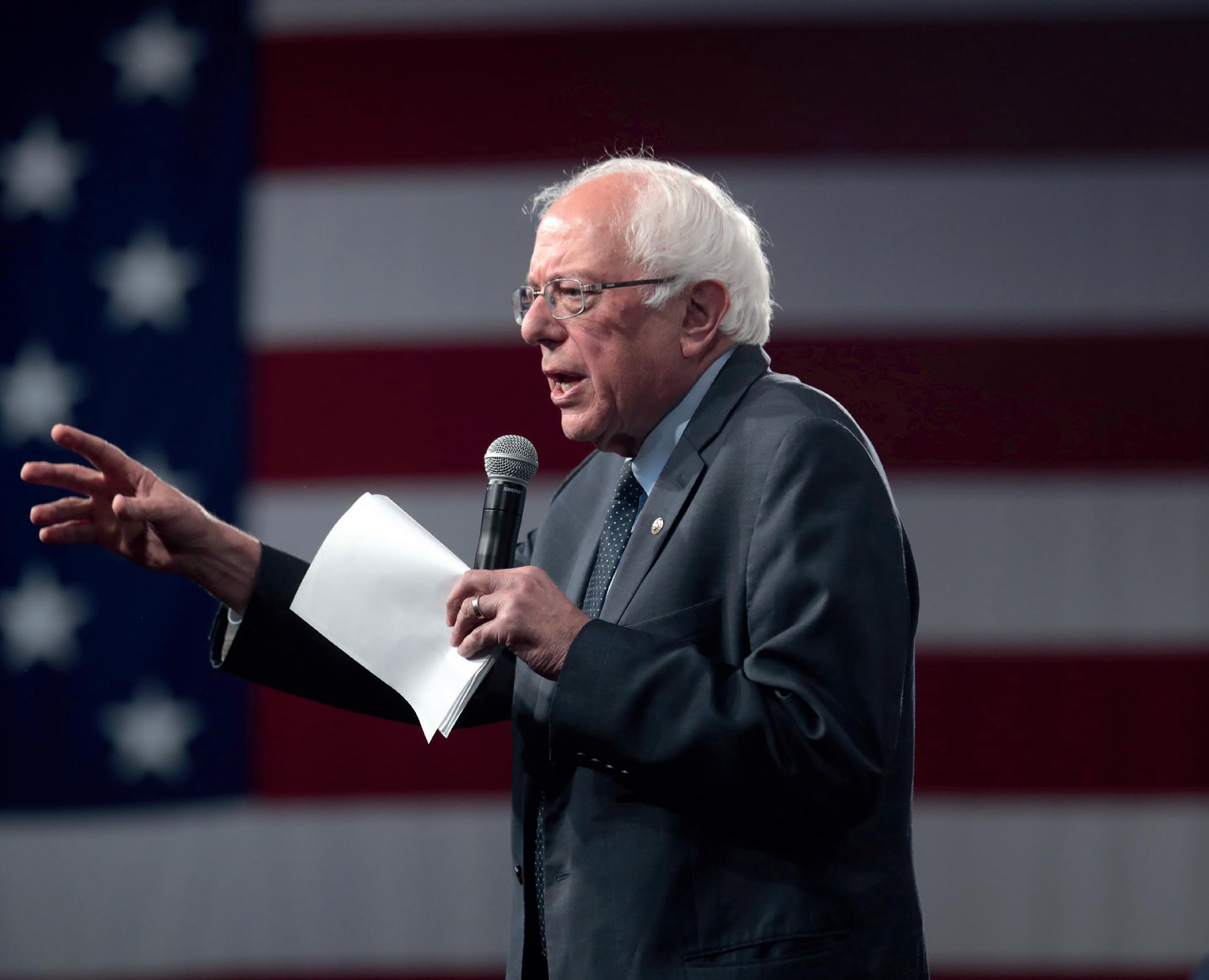
university education, and eliminate existing student debt. Sanders’ also supports a Green New Deal: a plan for legislation to reach net-zero carbon emissions by 2030 initially proposed by Alexandria OcasioCortez.
Bernie’s main opponents have so far been Pete Buttigieg, Elizabeth Warren, Amy Klobuchar, and Joe Biden.
Elizabeth Warren has the most similar policies, with the other candidates having more centrist views.
Pete Buttigieg currently

Joe Biden are most likely to win the nomination.
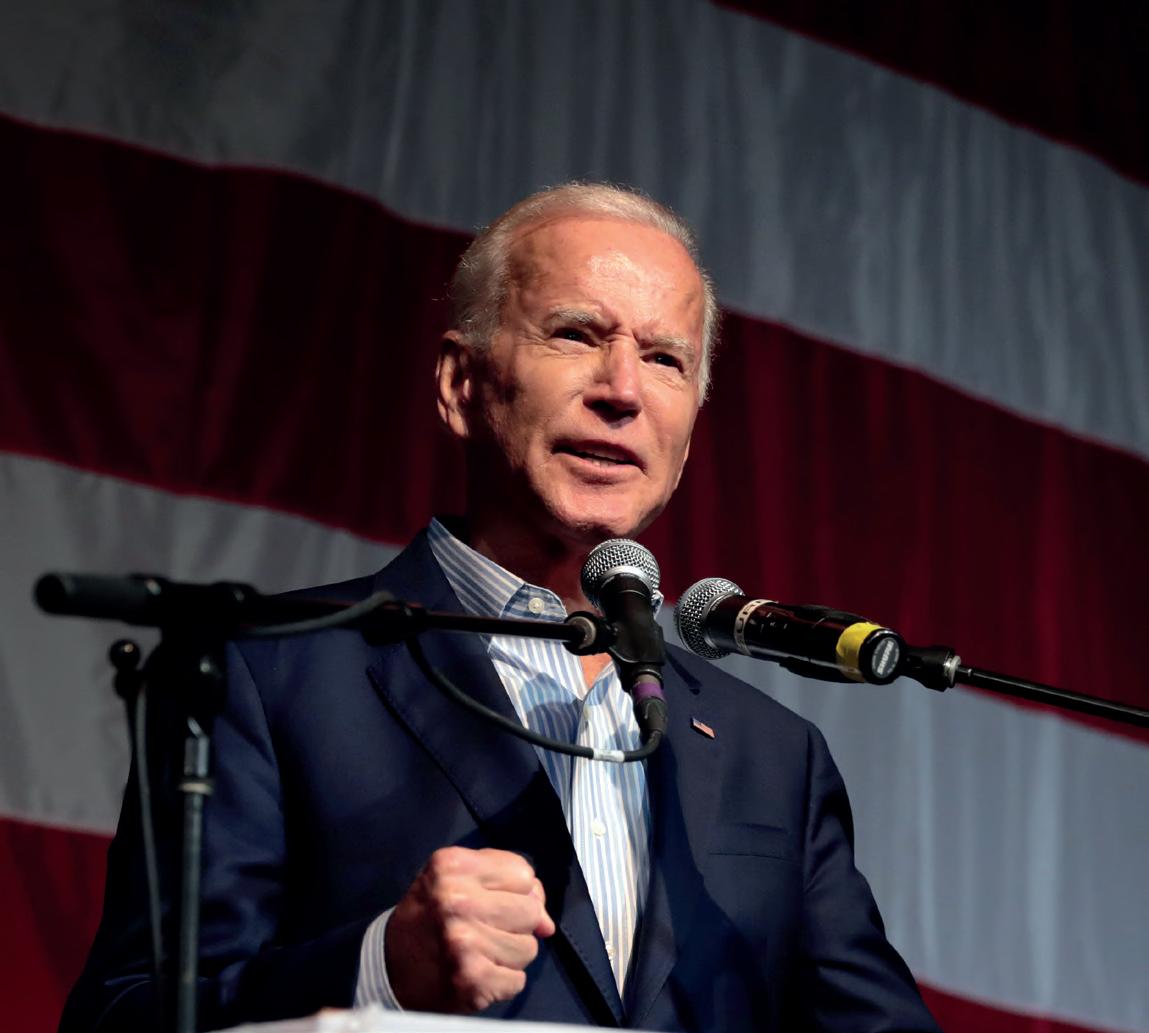
However, currently, only two primaries have taken place (in Iowa and New Hampshire), and it’s therefore possible these predictions will change as more results become available. Super Tuesday, when the largest number of states hold their primary elections, will be on 3 March, and should give a much clearer indication of which candidates are likely to win the nomination.
While it’s too early to tell who will win, it’s clear that Bernie’s campaign
because he has focused on issues like health care and student debt, that have a real impact on people’s lives.
He has been unafraid to stand up to the businesses and their billionaire owners that profit from the current system.
His policies are in line with his past voting records, as he has consistently voted for progressive legislation and advocated for tackling income inequality in the US.
If Bernie Sanders wins the Democratic nomination, this could be one of the most significant elections in US history, in which the country must decide between four more years of Trump’s administration, or a shift to towards the left, in what would be one of the greatest changes in the history of America’s political
8 25th February 2020 Global
Photo: Wikipedia Photo: Wikimedia Commons
Photos: Wikimedia Commons
“The UN had estimated civilian deaths at around 7,500 by September 2019”
Self-isolation or face punishment, Beijing tells returning travellers
 William Warnes Global Editor
William Warnes Global Editor
Chinese state media have reported that everyone returning to Beijing must self-isolate for two weeks to protect against Coronavirus, otherwise they will face punishment. In an interview with the Beijing Daily, the city authorities warned those who will refuse quarantine, but did not specify the potential punishment.
It is estimated that about 500 million people are on lockdown across China in an attempt to stop further spreading of the deadly virus. Anyone returning to Beijing will have to submit travel plans to their community in advance, a notice from the Chinese capital’s virus prevention working group reads. “From now on, all those who have returned to Beijing should stay at home, or submit to group observation for 14 days after arriving”. It went on to state, “those who refuse to accept home or centralised observation and other
prevention and control measures will be held accountable under law”. The virus’ death toll has now reached 1,873, with the latest victim being Liu Zhiming, director of the Wuchang hospital in Wuhan, the city at the centre of the deadly outbreak.
The World Health Organisation (WHO) is now investigating the outbreak, intending to focus on how severe the new Coronavirus is and how it is spreading. An estimated 500 million people are being affected by movement and travel
Antarctica breaks 20C temperature for the first time
Bryan Mfhaladi Global Writer
In a record-breaking event on the 9 February, an island in Antarctica has exceeded 20C, as Seymour Island off the coast of the peninsula recorded 20.75C.
The previous record for the entire Antarctic region was 19.8C, which was logged in January 1982. The Arctic region is also hitting record temperatures, as the previous year saw temperatures of 21C being recorded.
Brazilian scientist Carlos Schaefer, who logged the
events. “We have climatic changes in the atmosphere, which is closely related to changes in permafrost and the ocean. The whole thing is very interrelated.”
Temperatures in the eastern and central side of Antarctica are relatively stable, compared with the west, where warming oceans are eating up the huge glaciers located there. The temperatures caused melt ponds to appear faster than usual.
Mauri Pelto, a glaciologist observing the warming event, said: “I haven’t seen melt ponds develop this quickly in Antarctica,” … You see these kinds of melt events in Alaska and Greenland, but not

term trends seem to be heading in, is warming. Researchers expect the peninsula to heat up again soon,
Several climate change protests have been taking place, with many of the protestors crying out about how the climate crisis should be
restrictions in China, with Beijing and Shanghai, amongst other cities, imposing lockdowns in an attempt to prevent further spreading of the COVID-19 virus. The two cities’
what has been defined by Vice Premier Sun Chunlan as ‘wartime conditions’. Infections are estimated to be doubling every four days, and Wuhan has seen the implementation
surrounding province of Hubei are being sacrificed for the greater good of China”.
The Chinese government now faces an uphill battle in the attempt to halt further spreading of the deadly virus. The world’s most populous, and second-largest economy, is struggling to cope with the epidemic as the virus has overwhelmed the country’s healthcare system. However, this is no longer merely a national problem, as the first death in Europe and outside of Asia was reported in France last week: an 80-year-old Chinese man that passed away in hospital in Paris on January 25th. Infections are also rising globally, with nine people in England testing positive for the virus. The World Health Organisation is now attempting to understand the virus further, with the international stage now rallying together to halt the epidemic. Fears are rising of further outbreaks and the world now holds its breath to anxiously wait for an answer.
Sex tape ends French candidate’s hopes of becoming Paris mayor
Harry Routley Global Writer
While the race for the next mayor of Paris may not usually be the type of news to make international headlines, the events leading to the end of Benjamin Griveaux’s campaign have raised questions about the role a politician’s private life should play in campaigning as well as repeated issues over Russian interference on European politics.

Whilst not a frontrunner for the mayoral seat, Benjamin Griveaux was the candidate most associated with incumbent French President, Emmanuel Macron. Petr Pavlensky, a Russian protest artist, posted a video online supposedly featuring Griveaux in a compromising position. Pavlensky admitted to posting the video, arguing that he was exposing hypocrisy.
In a rare show of unity during the race, prominent figures from across the French political spectrum issued individual condemnations of the leak. Incumbent Mayor, Anne Hidalgo, asked for privacy to be respected; Socialist politician, Jean-Luc Melenchon, called the attack ‘odious’ while Far-Right
leader, Marine Le Pen, suggested that Griveaux should not have felt compelled to withdraw from the race. In a statement issued from Griveaux’s office, another
far”. Pavlensky himself had already gained a public profile, after nailing his scrotum to the Red Square in Moscow. He would go on to flee Russia and seek asylum in France after sexual assault charges Pavlensy said were politically motivated. He told the French press that Griveaux was targeted for running a ‘hypocritical’ campaign based on family values and that he was only the first politician to be targeted.
condemnation of the leaks was issued: “My family doesn’t deserve this. I’m not prepared to expose my family and myself any more when all these attacks are allowed. This goes too
While scrutiny on the private lives of politicians may seem slightly more accepted in the UK and USA, France has a strong tradition of separating the personal and political in an attempt to avoid a more American style of spectacle politics, explaining the condemnation of the leak from across the political spectrum. Despite Pavlensky’s exile status from Russia, commentators have argued that the video was intended to humiliate President Macron due to his fiery rhetoric against Russian interference in the West.
25th February 2020 9
| @ConcreteUEA
concrete-online.co.uk/category/global/
Photo: Wikimedia Commons
Photo: Wikimedia Commons
Photo: Wikimedia Commons
FEATURES
The cracks in our foundation (year)
Jess Barrett Deputy Editor
‘You don’t deserve to be here’. ‘That’s not a proper course’. ‘Why are you at uni?’ There is a harmful stigma surrounding students who take foundation year courses.
I’m not ashamed to say that I’m a student who took a foundation year. Well, not anymore. Every student I have come across who has taken a foundation year agrees there is at least some level of stigma surrounding the course. Honestly, I understand the confusion around them, but please ask us questions rather than making assumptions about the kind of student we are. The stigma takes form in both stereotypes about the difficulty of the course we take, but also about the type of person who takes the course.
Foundation years are often misunderstood. In short, they are a preparation year for undergraduate courses. They often require lower acceptance grades: the foundation year I enrolled in required three C’s in my A Levels. Foundation year coursework and exams are very similar to degree level, but we receive a higher level of support from the faculty and our advisors. We also have to fulfil requirements to get onto our chosen undergraduate course. For me, I had to pass the year with a 2:1 in order to get onto my undergraduate English Literature course. In our eyes, we earn the right to be at university. But we are often met with confused looks and dubiousness from our flatmates, our friends and our extended family. There is an unmistakable stigma. The negative response we receive from the majority of our peers can lead us to feel self-conscious and, for me, it has made me feel like I’ve
had to prove myself in other ways.
Once I arrived at university and moved into halls, my flat went around, and we introduced ourselves one by one. When we got around to me, I bleated, ‘Oh I’m doing English Lit with a foundation year.’ My flatmates were full of questions, ‘what on earth does that mean?’, another student asked the room, ‘Is that even a degree course?’. I resorted to belittling myself, replying ‘Oh I was an idiot during my exam season at A Level, so I didn’t get the grades I needed for the normal course, it’s just an extra year that means I can do the proper course next year.’ I was hurt inside that I was met with doubt, but I laughed it off. Looking back, I shouldn’t have felt the need to make myself small in order to hide away from the awkward questions I wasn’t prepared to answer just yet. I was constantly comparing my ‘BBC’ result to the A*’s and the A’s filling up the room. I felt smaller than my
way they acted around me, that they thought I was less of a person, dumb or stupid”.
Paige Allen commented: “Especially once you start your undergraduate course, I agree that there’s an added pressure to push yourself once you’ve taken a foundation year because we’ve worked for a whole year trying to prove we are capable of completing our degrees.”
One student who didn’t take a foundation year, Emily Kelly, commented: “I didn’t know what foundation years really meant at university, there’s a lot of confusion surrounding them.” And it’s fair that not all students know what they are, that’s fine. But please be considerate when asking us questions about it. We’ve worked hard. We’re not lesser people. It’s hard to meet looks of confusion and try to explain your way through it.
In addition to feeling as if I needed to constantly prove my worth within my academic course, I was worried that I would feel out of place in my first year of my undergraduate course. There were many reasons for this: I would be a year older than my peers, I would have been at university a year already, I would no longer be living on campus and it would be the first time I would be studying just one subject.
only negative of the foundation year is that you’re paying for another year at university, but that’s a price many of us are willing to pay so we can get an undergraduate degree.
My foundation year made the transition from sixth form to
In 2019, Dr Phillip Augar released a review, which amongst other things recommended that foundation years should be scrapped. The Augar review’s dismissal of the importance of foundation year courses came as quite a surprise.


‘BBC’. I felt like I didn’t belong in the flat, or at university and honestly, I found freshers week very isolating because of it, as if I had to prove my worth. I wasn’t alone in being victim to the stigma surrounding foundation years.
Jamie Woodward, another student who took a foundation year, agreed that a stigma exists. He remarked: “I felt that as soon as someone found out that I took a foundation year, they changed the
In all honesty, a lot of my worrying was unnecessary. My age didn’t matter at all – a lot of students take gap years or switch courses, so I felt less out of place. Secondly, I had a great group of friends surrounding me, I didn’t feel like I had to live on campus to feel included. Additionally, being at university for a year already was very helpful – I knew the library system, the layout of campus, and the ins and outs of referencing. The
university a lot easier, and I’m glad it has meant I have an extra year at university. UEA really is the home of the wonderful.
There is a similar stigma surrounding students who get into university through clearing. Both circumstances mean that the typical entry requirements weren’t met, but also leads to students feeling like they have to make up for lower A level grades in other ways, either excelling at their degree or taking on lots of extra curriculars. To anyone who has gotten into UEA through clearing or through a foundation year – it is important to remember that the university wouldn’t allow clearing students or foundation year students on to undergraduate courses if they didn’t have faith that we would succeed and thrive. We’ve put in enough work in order to be considered able to complete full degrees, and we often get the same level of degree as our peers.

As a student who has taken a foundation year course, I advocate the importance of such courses. They provide opportunities to students who may not have done so well at their A levels, but who still strive to succeed at university. As part of my foundation year course, there were requirements in place to ensure that we would be able to keep up with our chosen undergraduate course and its academic demands. This ensured that all students were worthy of being at university. The recommendations made by the Augar review implies foundation years are a financial burden on universities, and completely ignores the fact they are extremely important in offering students a stepping-stone into higher education, especially for those who are from low-income families. Foundation years are invaluable and have helped so many students go on to have thriving university experiences.
Don’t let how you go into university define you, you are so much more than your foundation year. Other students’ opinions shouldn’t define your university experience. Now I’m at the end of my degree, completing a foundation year hasn’t affected me nearly as much as I thought it would. Although I was not outcast by my peers, I was still met with a considerable amount of stigma, but hopefully the levels of stigma surrounding foundation years and other, less traditional, routes into higher education will lessen over time.
10 25th February 2020
“You don’t deserve to be here”
Photos: Concrete/Roo Pitt (above), Pixabay (below)
What are my options after graduating?
Leelou Lewis and Paige Allen Features Editors
Internships and Graduate Jobs are quite similar as the two connect to work experience gained from actual employment, and both are paid.
Most post graduates pursue a graduate job from which they then can start establishing and building a career.
Usually at the end of their studies, most students know what they want to work with, and through the universities Career Central they can receive advice and guidelines as to what would suit them, and how to find and apply to these jobs.
However, it is no easier for students to get the jobs they apply for, then it is for any other job application, so it is important not to feel discouraged if you do not get your first choice.
Then again, maybe you are not one hundred percent sure as to what you want to work with, how to start your career, or which path to take whatsoever.

If that is the case there is no need to get yourself down, internships could be your answer. An internship is a work experience type of job, meaning you have it for a set period
of time. This period can be anything from one week to a year, and the intern is paid at least minimum wage throughout. It is beneficial for students who are unsure, curious about several careers, or simply feel the need to gain more experience before settling for a job post graduation. Whether you are a student who knows exactly where you are going post graduation, or
if you have no clue what the future might have in store for you in the field of work, Career Central are there to support and guide you in these matters. On UEA’s Career Central website there are almost an overwhelming amount of post grad jobs and internships, so if you do not know exactly what you are looking for, the best and easiest act you should start with is contacting
or visiting the career central or some other advisor to discuss your options as well as your ambitions and dreams.

Alternatively, grad schemes are structured training programmes for recent graduates to gain experience in larger organisations. They last between one and two years, and are available in numerous industries ranging from finance, marketing,
HR, management and law.
Applications for grad schemes usually open between September and October for intake the following year. Grad schemes are designed to give you hands-on experience, and a chance to develop a deeper understanding of your chosen profession.
Some grad schemes will focus on a particular role, whilst others will be split into different placements, working across a variety of business roles, teams and potentially locations.

However, there are some cons to grad schemes: they are very competitive, and largely oversubscribed, with limited places. Alongside a gruelling application process, in which you’ll have to be successful through multiple stages, including psychometric testing, phone or Skype interviews, group assessment days and an individual interview.
Grad schemes can have a very corporate environment, and can involve long working hours.
On the other hand, while careers may not be all about money, those on graduate schemes enjoy an average annual salary of £27,000. They also offer amazing training and development opportunities in a relatively short space of time.
Eating disorders: feeling guilty
Sam Gordon Webb Features Writer
Mental Health Crisis
When was the last time you felt guilty about something? Anything?
Guilt rides around the avenues of everyday life, doesn’t it?
Guilt feeds a sense of doubt in ourselves, allowing us to question our own judgements.
If you murder your neigbour’s cat with an axe, then you ought to to feel - guided by moral judgementto feel guilty having committed such reprehensible actions.
After all, you are guilty of a crime, shamed, embarrassed, and regretful. Hopefully.
But wait a minute. Guilt is a subjective proposition, arising as a result of an individual’s inherent beliefs and values. If you feel guilty, chances are this is the way society -
the external world - expects you to feel.
Bingo! Not all guilt is felt rationally.
In fact, much of it is not. This sense of guilt often exposes the deepest and most damaging sides of ourselves, especially when related to the consumption of food.
The pressure to feel guilty about eating certain foods generally increases the likelihood of greater food restriction in the future.
Keep in mind food restriction results in the disintegration of your physical and emotional well being, and sincerely reduced ability to function and cope on a daily basis.
It is not worth it.
Trust me. Been there, done that, and not going back.
Food-related guilt forms the basis of most eating disorders, but it also forms the basis of much of our wider discussions surrounding food.
The term ‘guilty pleasure’ springs to mind, or ‘cheat days’, or even ‘guilt free’.
But is chocolate cake really a guilty pleasure? Do macaroons for breakfast make you a ‘cheater’? Should ‘natural’ sugar and ‘healthy’ fats really spare you from feeling guilty?
No, definitely not. On the contrary, the increased moralisation of food is one of the most dangerous and consequential trends in our times.
It also undermines our body’s ability to self-determine it’s natural urges, the consequences of which are manifested through eating disorders.
Much of my childhood pleasure derived from food. I would always ask for seconds of everything.
I will admit it, I felt guilty about eating so much food, despite acting on physical hunger.
I felt greedy, and moreover, did I deserve it?
Less was more, my disorder screamed. Less ice cream meant less guilt. Less guilt means more joy.
I would be exacting control over my devil’s instinct.
Truth be told, my mind was simply reneging on my body’s freedom to choose what, and how much to eat. I strongly regret this irrational pattern of thinking.
I still feel guilty sometimes. This is why - as part of my recovery journey - I purchase at least one takeaway meal per week. I must convince myself that I definitely deserve the food, even the added expense. I ordered my first takeaway a few months ago, this sense of guilt pulsing through my veins.
My disorder wept as my mouth carefully muched. My thoughts directed me towards giving up, but I did not let these thoughts slip into action.
I just kept firing back with fierce swallowing and gritted teeth. It sounds ridiculous, I know. But eating disorders are powerful things. Ask any sufferer.
The point is feeling guilt is normal.
I feel guilty at being such a
burden on my family, having wasted so much of their precious time.
Rational? I certainly think so, but how about my parents? Possibly not.
Indeed, guilt is often irrational, unnecessary, and rarely supported by reality.
Guilt about eating has been normalised in the age of ridiculous diet culture and body image stupidity.
In reality, intuitive eating - acting upon your body’s desire for food - must always be prioritized, no matter what wider society makes of it.
This is easier said than done. But the more we challenge the myths, the more we challenge ourselves to change.
We do not deserve food, we need food for survival.
Good or bad aside, we must end the categorisation of food into such black and white terms, posing an indefinite threat to our physical and mental health. Chocolate for breakfast? No crime.
25th February 2020 11 concrete-online.co.uk/category/features/ | @ConcreteUEA
Photo: Unsplash
Photo: Unsplash
Asher Minns: ‘There’s far too much
Matt Branston talks to the Executive Director of

If I’m being honest, the only reason I knew where the Environmental Sciences building is, is because I’ve cut through there before to go to Chancellor’s Drive. Even then, I wasn’t sure I had the right place. Now I’m sitting on the leather sofas, facing the Climate Research Unit, a building I’ve walked past a lot in the last couple of years, but not considered much (even though it might be the most interesting one on campus).
In front of me is Asher Minns, the Executive Director of the Tyndall Centre for Climate Change Research. The Tyndall Centre was founded in 2000 and, headquartered at UEA, has bases around the country, and in their own words, “conduct cutting edge, interdisciplinary research, and provide a conduit between scientists and policymakers”. Minns’ role is to coordinate, support researchers, and help connect with, “policymakers [and] the public, engaging with the people who need to know about climate change”.
Minns begins by telling me the current research being worked on at the UEA base: a lot of international development research, with a focus on how those in the Global South are being affected, “how that relates to poverty and wellbeing”, things that Minns always thinks as related to climate change. They’re doing, “specific work for the UK government looking at the impacts of climate change on some quite specific countries relevant to the United Nations negotiations”, “work around sea level rise and coastal erosion”, and “a lot of work on […] mitigation, which is reducing carbon dioxide emissions from how we use and make energy”.
We don’t always hear about the Global South and climate change, there’s little coverage in the UK media.
Minns comments, “Everything pretty much has to be with a UK angle to it […] that’s the case anyway, not just with climate change […] certainly stories about the South and what’s going on in the South, which is often where more of the impacts of climate change are already […] having more impact and cause more impact because of the lack of ability to respond and be resilient to climate change.
Ultimately, they’re all stories of people. And so it could be less about climate change itself, but more about stories of people and what they’re facing and what they’re doing. In the literature, it’s called ‘psychological distance’. The idea

that climate change is sometime in the future happening to people far, far away. But what we’re seeing, even in the UK, there’s a load of flooding happening right now, successive storms, and so on, is that psychological distance is actually narrowing slightly because it’s actually being felt here in the here and now, this isn’t some far and away into the future kind of thing”.
I ask what the other effects of climate change that happen nowadays are, things people might not notice, Minns qualifies his response by saying, “depends where you are in the world”, but goes on to say, “coastal erosion is important locally to where we are, but most megacities, most people live on the coast because that’s where civilisation grew up […] so
that is particularly relevant, and it’s particularly relevant to countries that don’t necessarily have all the places with sea defences, but that even includes here […] some areas are already being sacrificed because they’re not worth defending”.
Minns points out we’re actually past some of the projections of what climate change would be like in the year 2020, especially with wildfires, such as those in Australia, Portugal, and California, “all those sort of direct and indirect impacts that seem to be […] this is more than expected”.
But what’s the next step? What needs to be done? “Responding to climate change requires an absolute transformation of society, that’s an infrastructure change, because we’re locking in to the way we do things, the way we travel, the way energy is delivered to our plugs and our fuel tanks, so there’s big infrastructure change need, that’s everywhere, not just in the UK, that’s major change, how we make power, how we use power, how we go about our lives”.
Minns says that a lot of the current change is ‘bottom-up’ from people in society, such as Extinction
Rebellion (XR) drawing attention to the climate emergency. So what can the average person do? “You can just buy tariffs that are green […] but that’s the easy one, because all that is is changing your energy provider, so your entire house is powered by green electricity, and at the same time, you’re making more of a demand for green energy”. Minns carries on, “I see this myself anyway amongst the younger generation, is the relationship with cars. With my generation, everybody had to have a car […] I’m aware of some people who choose not to have a car […] having electric cars isn’t that cheap, so obviously I’m not expecting students to do that. But you really have to think about it, is this journey necessary? Is there a different way of making this journey?” But we can also help influence policy through things such as endeavouring to make councils care and take effect, making it known you’re concerned about the environment.
A lot of people suggest stopping buying from major companies and high street clothes shops or technologies, but Minns doesn’t think that solves the issue: “I don’t think that’s likely to happen. I think we’re [...] in a globalized world for right or for wrong. And, you know, all the big shops that sell cheap clothes made in faraway places.
My personal take would be to make those conditions better for the people who are making the clothes, getting reward for making those clothes. I can’t imagine that globalisation will grind to a halt. I know some people will have much more ethical purchasing decisions than other people.
But I think it’s also transforming
those industries to be better at what they do. And again, that comes a bit from sort of this consumer power. People’s purchasing choices, it’s better or in some ways easier to influence the free market than to think it’s going to end, for right or for wrong, I don’t think it’s going to end.”
But with climate change, choices like electric cars and bespoke, local clothes are expensive, so it’s difficult for the working classes to make those choices.
There’s also an issue where proclimate changes, such as opening wind turbines for energy, can negatively affect the people who work in coal power plants. Minns says, “it can be a bit elitist, this whole thing about climate change, transforming of society is it kind of tends to be people like me who’ve got a bit of disposable income and can actually, if I chose to buy an
electric car, I could, or chose to move house into a super energy efficient home […] The transition is about not just speaking to the elites, it’s about engaging with everybody and not causing breakdowns in people’s livelihoods. So, an example would [be] with farmers: If there was suddenly going to be less demand for beef.
What happens to farming, what happens to rural communities? This needs replacing and swapping out, not just ‘let’s not do that anymore’. It’s ‘what’s better?’ ‘What can what can be done?’ […] Well, you can’t just stop stuff […] And then I think most of those replacements will actually just better transform society anyway, so they have to be advantageous for everybody.”
Minns urges us to talk more about the climate though. “There is a lot of discourse and interest in climate change. Possibly quite a lot
12 25th February 2020 INTERVIEW
Matt Branston Features Writer
“[Climate change is] actually being felt here in the here and now”
concern about climate scepticism’
the Tyndall Centre for Climate Change Research
his role as a communicator.
Minns jokes, “It just means you get quite a lot of questions about Donald Trump”, but goes on to explain, “The US has never paid attention to climate change, US emissions are actually going down, but it’s not got much to do with the federal government, more to do with state governments […] But, you know, the only time that the U.S. government paid attention to climate change was for a little bit under Barack Obama, for all the rest of the time, it wasn’t turning up in the negotiations, and not cooperating.
There’s nothing new with Trump not joining and dropping out. The landscape doesn’t change. I think it reflects more [...] on America’s place in the world or retreating from the world than it does on international climate change.”
scepticism, there used to be more scepticism, organised scepticism around climate change, it has been quite influential.
But I think there’s too much obsession with those outlier views [rather] than the views of the majority. You know most people are in the middle, they’re not out at the extremes.
And so it’s the people in the middle that we’re interested in, the majority.”
When the ‘Climategate’ scandal happened at UEA, there was a lot of uproar, but looking back, Minns says there were some benefits when it comes to the leaks, “it actually enhanced and improved the way that climate change engages with the outside world or climate change academia, just by being more transparent. It wasn’t meant to be hidden away […] because of all
to happen in any sort of reasonable timeframe that’s very useful. I do worry that so much attention is paid to mitigation that that’s actually causing maladaptation, that we’re not preparing ourselves as we should be for the things that we know here and the things that we that we know are coming as well […] The Paris Agreement was about limiting the global warming to [between] 1.5 to 2 degrees, we’re already at one degree, so the chances of reducing global warming globally [...] through mitigation to one half to a degree is to me pretty unlikely. 3.5 degrees of warming is locked into the system if countries deliver on everything they said they’d do”, but even then, according to Minns, “that’s huge, that’s a massive transformation in itself just to deliver on the pledges”.
One area of concern is connecting with businesses. A lot of the work the Tyndall Centre does is with policymakers, “but there isn’t actually much being done to work with businesses, and so businesses are doing things themselves, maybe they’re working with consultancies, but they’re not working with thought leaders, so much bigger and better engagement, I’m bound to say that I’m a communications person, but genuinely the need is there and we’re not fulfilling the need.
There is however, plenty of climate change research and climate change research organisations, so while there’ll always be that research, what’s more important is engaging the world with what we know”.
of that conversation isn’t hugely useful. It’s still at the awareness raising [stage], people don’t know how to respond to climate change, they’re just worried about climate change, certainly the majority of people think it’s human-caused now.” He said a worry of his is ‘climate silence’; that people don’t talk about climate change enough, possibly because it’s such a massive topic, but he states, “one of the things I always talk about to people is to talk about climate change.”

But what about UEA? What can the university do in order to solve the issue of climate change?
One of Minns’ major concerns with academia is the culture of flying.
He explains that flying is pretty much the most CO2 intensive activity an individual can participate in, made even worse by the multiplier of the flights being higher in the atmosphere. “All these international
conferences, flying a very long way to give a 40-minute speech somewhere you haven’t been before […] how important is that journey? Was it really essential you went on that journey? If it’s fieldwork somewhere far away, then clearly you have to go do your fieldwork, but it’s the 40-minute talk.”
Minns goes on to say it’s made worse by the public view of it, “research shows that if those of us who are talking about climate change and the environment and we’re flying all over the shop, we’re losing the trust of our audience, and there’s research that shows exactly that, that people want to see that the people talking to them, in terms of the public, are actually walking the walk, instead of ‘thou shalt’.
Increasingly, we hear of Donald Trump and the US as being separate to the rest of the world on climate, so I ask how the President is effecting
There’s a bit of fear there, “on this scale of international negotiations, really, if a big country like the US isn’t involved and that doesn’t signal very good things to lots of other countries that look to the US for what to do, […] I think it could have done the opposite, it would actually probably strengthen the position of most other countries and most other people.”
With Trump, there’s been a lot more conversation about climate scepticism, which intensified last year here at UEA, when Philosophy lecturer and XR member, Rupert Read, refused to appear on BBC Radio over their decision to have a climate change denier on with a pro-climate speaker in order to offer what the BBC refer to as ‘balance’.
The BBC has now changed their policy to no longer require climate deniers for balance.
Minns tells me, “There’s far too much concern about climate

those reviews, it really showed the science to be bullet-proof, so that was good, not at the time that it was going on, but in the lovely hindsight of history. I mean this even includes the review that was done by the sceptic funders […] even their own review couldn’t find anything, they had to conclude ‘it’s actually good shit’”.
Minns puts simply, “science is all about scepticism, don’t believe anything until you’ve seen the data. And so people testing our mettle on that, that just makes for better, more strengthened research.”
Another major concern with the climate is adaptation.
Minns talks about how there’s too much focus now on mitigation, reducing the pollution, but the other side to climate research is adaptation, “which is being resilient to what’s already happening […] I actually worry that a bit too much attention is paid to mitigation because mitigation has to be the whole planet over […] maybe mitigation will become less important because it becomes apparent that it’s not really going
This engagement is vital, Minns says, and he even suggests having whole communications arms in research organisation, because engaging with the world is so important, “the public opinion polls tell us that people are thinking about climate change and they’re worried […] I don’t think it’s about climate change, actually. I think in some ways that worries me a bit as well.
We get hung up on ‘this is all about climate change’, but it isn’t. It’s about the world we live in. And that’s air quality, what’s living in the seas, the way we feed ourselves, are we able to feed ourselves? Pollution? Is there going to be anything left alive in terms of biodiversity?
A climate emergency is a biodiversity emergency as well.
So in those terms, I’d like to think that climate change is sort of umbrella term for lots of lots of stuff, and I think it’s about a better planet in terms of a healthier planet and healthier people on that planet, as is sustainability in its broader sense, not just to do with the weather systems that are changing, it’s beyond that.”
25th February 2020 13 concrete-online.co.uk/category/features/interview | @ConcreteUEA
Photos James
“[Trump’s climate opinions] probably strengthen the position of most other countries and most other people”
Photo: Concrete/ Harry Chapman
Drop the drivel, get to the good stuff
Leia Butler Comment Writer
Award show speeches are either boring drivel, light-hearted banter or politically charged rants. Should winning celebs stick to the soft stuff or should they delve into the issues facing our current social climate? I think if it needs to be said, and they have the platform to say it, why is it an issue?
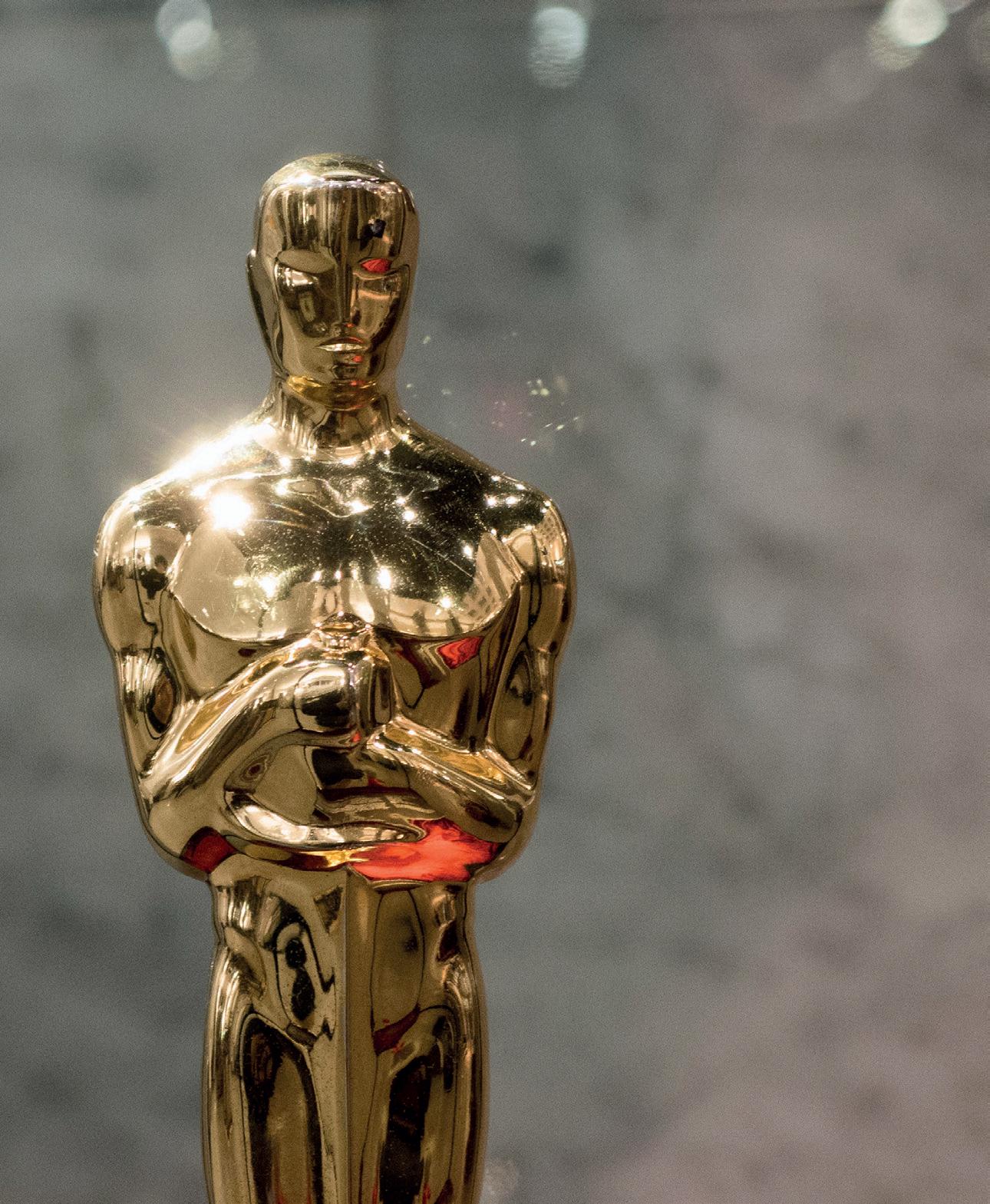
Taking advantage of a big opportunity to speak out against important issues in front of today’s society in front of a big audience is making a statement. News outlets will report on it, the speech will get attention on social media and it will be talked about by the general public. It is brave and it is bold. If the issue is important and needs attention, I don’t care who says it and if they have won an award, why not?!
They have been rewarded for a spectacular performance in their field, and if they choose to use their speech to bring attention to significant issues that they feel strongly about, I feel like that is justified and a brave use of the platform. Ricky Gervais recently tweeted saying, ‘come up, accept your little award, thank your agent and your god and f--- off’ in regards to political speeches.

He argues that it is hypocritical for these celebs to be ranting about serious issues when they, ‘know nothing about the real world’.
I see his point, I think it is a good one, but I’d much rather hear a passionate speech from the heart
about animal rights, like those from Joaquin Phoenix, than a low effort attempt at comedy like Rebel Wilson’s recent Bafta speech. I know some people would have found it hilarious, but for me, it was just cringe. It didn’t do anything to increase my awareness of bigger issues, give me food for thought, or
classic ‘I’d like to thank....’
I get why they are important for the awards winner, but everyone else just zones out. They are exactly the parts I’d fast forward or mute. If you have time to make a speech where all eyes are on you, at least make it
Of course, in today’s social media-centred society, most celebrities know that a politically driven speech will receive attention from the public, and it can be a motive for media attention and
Though they can be used as a device for attention, if the topic matter is important, then I don’t really care about the motive behind the speech, so long as the content is important and can benefit from


In an ideal world, celebs would be raising awareness of issues that they actually care about,
Rishi Sunak’s meteoric rise to power
Harry Routley
Comment Writer
One could almost hear the frantic movements across the keyboards as my housemates and I attempted to rapidly google the new Chancellor of the Exchequer, a position that is seen by many as the second most important in government after that of the Prime Minister (and perhaps more recently, whatever Dominic Cummings is). It would be difficult to blame us for not knowing anything about the new Chancellor, as until his recent appointment, Sunak’s highest office in government was Chief Secretary to the Treasury he now runs.
Prior to becoming an MP for Richmond in 2015, Sunak worked as an investment banker for Goldman Sachs, before founding his own investment firm. Sunak comes from the trusted brand of Westminster Conservatives, having studied PPE at Oxford. So far, so boring. Some attention has been given to Sunak’s

wife, Akshata Murthy, the daughter of Indian billionaire Narayan Murthy. However, on a surface level, little evidence can be seen as to why Sunak has been elevated to such a high position from a comparatively junior one.
Perhaps Boris Johnson simply wanted a chancellor more aligned with him ideologically, after all, Sunak campaigned for Leave in the EU referendum as well as backing Boris early on in the leadership campaign. It is equally possible that Johnson paid attention to some of

the increasing buzz surrounding Sunak. Former Conservative party leader, Lord Hague, called Sunak an, “exceptional individual”, and his
Sunak may even be positioned as a future Prime Minister. Afterall, it is not uncommon for an incumbent PM to build up their Chancellor as a potential replacement.
However, whatever talents
Sunak can bring to the office may have been overshadowed for the moment due to the circumstances under which his predecessor
Sajid Javid resigned during the cabinet reshuffle despite being offered the Exchequer again, as he was commanded to release his own

external advisers and merge his team with that of Dominic Cummings and the PM.
For Mr Javid, this was one power grab too far, prompting his resignation.
No matter who came into the role, the next Chancellor would be seen as a ‘yes man’, lacking the independence of Javid, willing to meekly accept the centralisation of power within 10 Downing Street.
In attempting to undercut this assumption by elevating such a clearly capable individual as Rishi Sunak, Johnson may have underestimated the potential of his new neighbour in 11 Downing Street.
Sunak worked in high pressure environments for years in the world of investment banking, becoming one of a small minority of hedge fund managers to actually profit off the 2008 Financial Crash.
former boss Sajid Javid stated, “The force is strong with young Sunak”. On that end, in the long-term,
If Sunak can demonstrate this unique insight in the Exchequer, we may witness one of the most meteoric rises through the Conservative party since David Cameron.
25th February 2020 16 Comment
It is the winner’s platform and opportunity to say what they
Photos: Wikimedia Commons
Photos: Wikimedia Commons
Photo: Libreshot
Every society has value to someone
Ellie Robson Comment Writer
The most recent front page of Concrete revealed that the SU is at risk of going bust “in a few years”. The story was prompted by an interview with UEA(su)’s activities and opportunities officer, Alicia Perez, one of five full-time student officers at the Student’s Union.



In discussing the future of the SU, Perez commented, “there’s definitely not a necessity for us to run 250 societies”.
As someone whose university experience has been shaped by the existence of societies, this was extremely disheartening to read. Whilst I am disappointed at Perez’s stance, I am further infuriated that the SU are potentially facing a future which would force the number of available societies
to be cut down. I truly believe every single society is needed and deserves its place at UEA. When there is demand for a society, both from the student body, and from the people who are willing to dedicate their time to the running of it, lack of SU funding should not be a barrier they need to worry about.
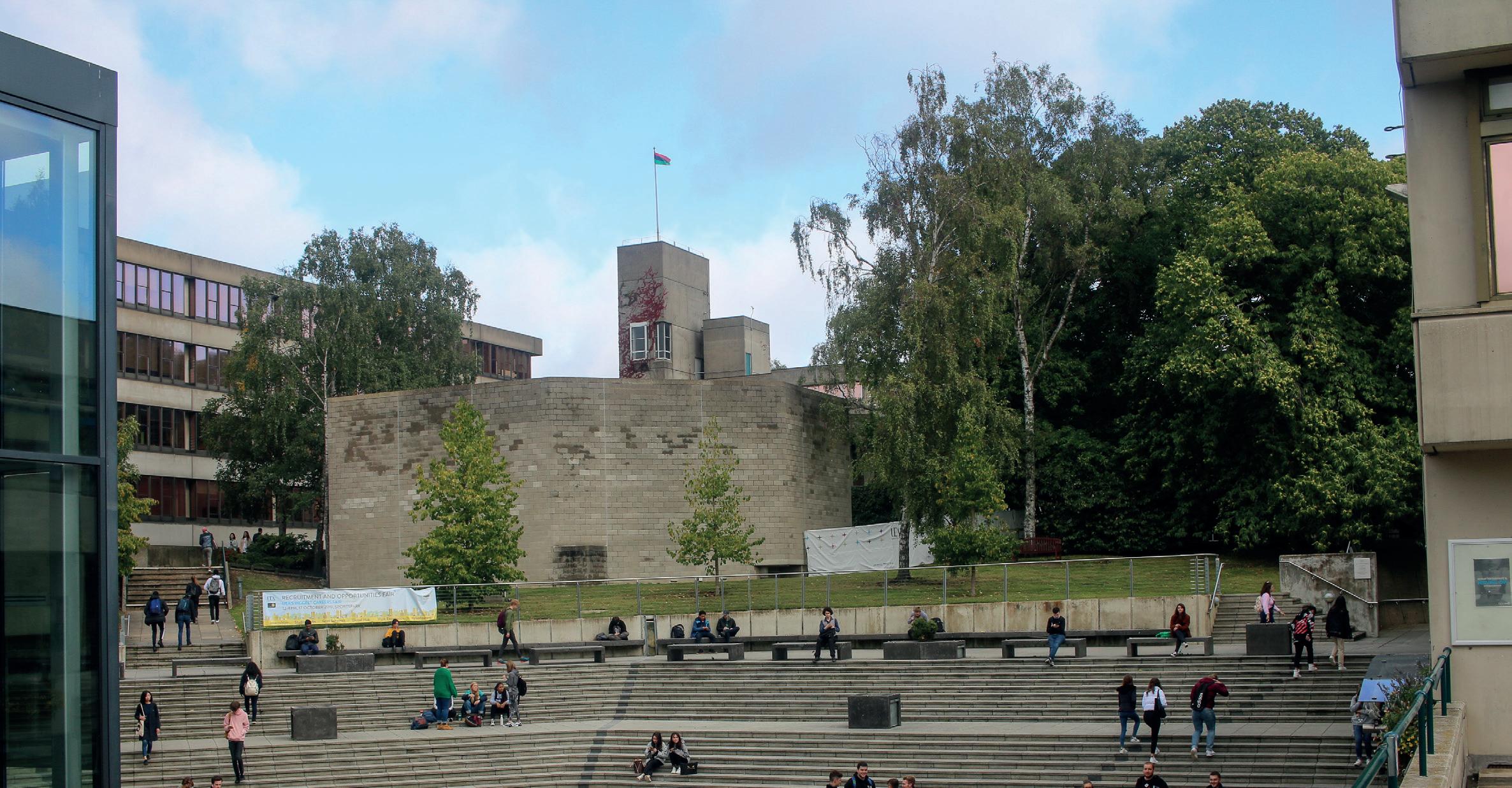
I’m aware of the arguments against this. Many would dispute the need for niche societies at university, and I’ve heard other students say they feel some people have set up societies merely to reap the benefit of having it on their CV. But there’s a reason why being involved in a society looks fantastic on your CV. Committee members are responsible for keeping their
society active and relevant. This means committee members have to market their society, learn how to speak publicly, and interact with a range of people to convince them to become members, and navigate pages of administrative work, from health and safety forms, to everyday email interactions.
Your years at university are probably the last where you’ll have the privilege of being able to choose to dedicate hours of free time to a variety of different hobbies for a low price, and that should be made the most of. Every society is key, and even if you don’t see the value in it, it could be a lifeline for a lonely student. For example, food-based societies bring together huge communities for a small joining fee.
I’ve been on the committee for the Feminist Book Club since my first year, and whilst it’s a small society, our few, but
consistent, members have become friends for life and created an incredibly safe and welcoming environment for the discussion of difficult topics.

Whilst it’s not for everyone, and potentially considered niche, it’s been life changing for me. Everyone deserves to have access to that lifechanging opportunity.
nominations open now uea.su/elections

17 25th February 2020
| @ConcreteUEA
concrete-online.co.uk/category/comment/
Photos: Centre and Right - Concrete/ Harry Chapman, Left - Concrete/ Roo Pitt
Super-tusker elephant dies
Leia Butler Science Writer
Super-tusker elephants are African elephants that have genetically longer-than-average tusks. With less than 30 Super-tusker elephants left in Africa, the loss of one is significant news.
The recent death of a 60-yearold Super-tusker, known as ‘F_MU1’ and who was deemed, ‘the queen of elephants’, has saddened scientists and the public around the world.
She does have another name, however only coded names are used for members of the public, to protect the security of the elephant, as they are usually named after the places they are found.
British photographer, Will Burrard-Lucas captured some stunning photographs of the elephant before she died and
said the first time he saw her, he was ‘speechless’. F_MU1 died of
Speaking on the experience of photographing the elephant, he said, ‘It was a feeling of privilege and euphoria that will stay with me forever.’
Though F_MU1 died naturally, two years ago, a 50-year-old Supertusker called Satao II, was killed near the Tsavo National Park border.
Most of the elephants still alive live in Tsavo East National Park, where they are carefully managed and supervised for protection. However, Satao wandered too far across the borders and was killed.
trophy hunters.” He added, “as these animals are all-too-often taken out before they have reached their reproductive prime, Super-tusker genes are being bred out of elephant populations, and we could very well be seeing the last of them.”
Adult male’s tusks are known to
grow to be. ‘Tuskers’ have a genetic variation which means their tusks grow even faster than usual. F_ MU1’s tusks brushed the ground when she walked.

Ian Redmond OBE, a renowned conservationist specialising in elephants and apes, said, “An elephant will grow more ivory in the last ten years of its life, than in the first ten or twenty.”
natural causes, which pleased many conservationists, as more often that not, tuskers are killed by poachers. Burrard-Lucas said, “she had survived through periods of terrible poaching and it was a victory that her life was not ended prematurely by a snare, bullet or poisoned arrow.”
Tusker elephants are hunted by the ivory trade because their tusks are rare due to their ability to get so long without breaking.
Dr Mark Jones, from the Born Free wildlife charity said: “Supertuskers are very rare these days, precisely because their big tusks makes them prime targets for
grow up to 18 cm (7 inch) per year. Therefore, the longer an elephant lives for, the larger their tusks will
With China shutting down ivory factories in 2017, this is good news for the elephants, as that is where much of the ivory previously went to. China continues to work with the African Wildlife foundation to do what it can to prevent elephant hunting.
There are around 415, 000 African elephants left in the wild, but with 100 elephants being poached a day, without intervention, they could be extinct in the next decade.
Is turning vegan really better for the planet?
The number of people switching to a plant-based diet is increasing.
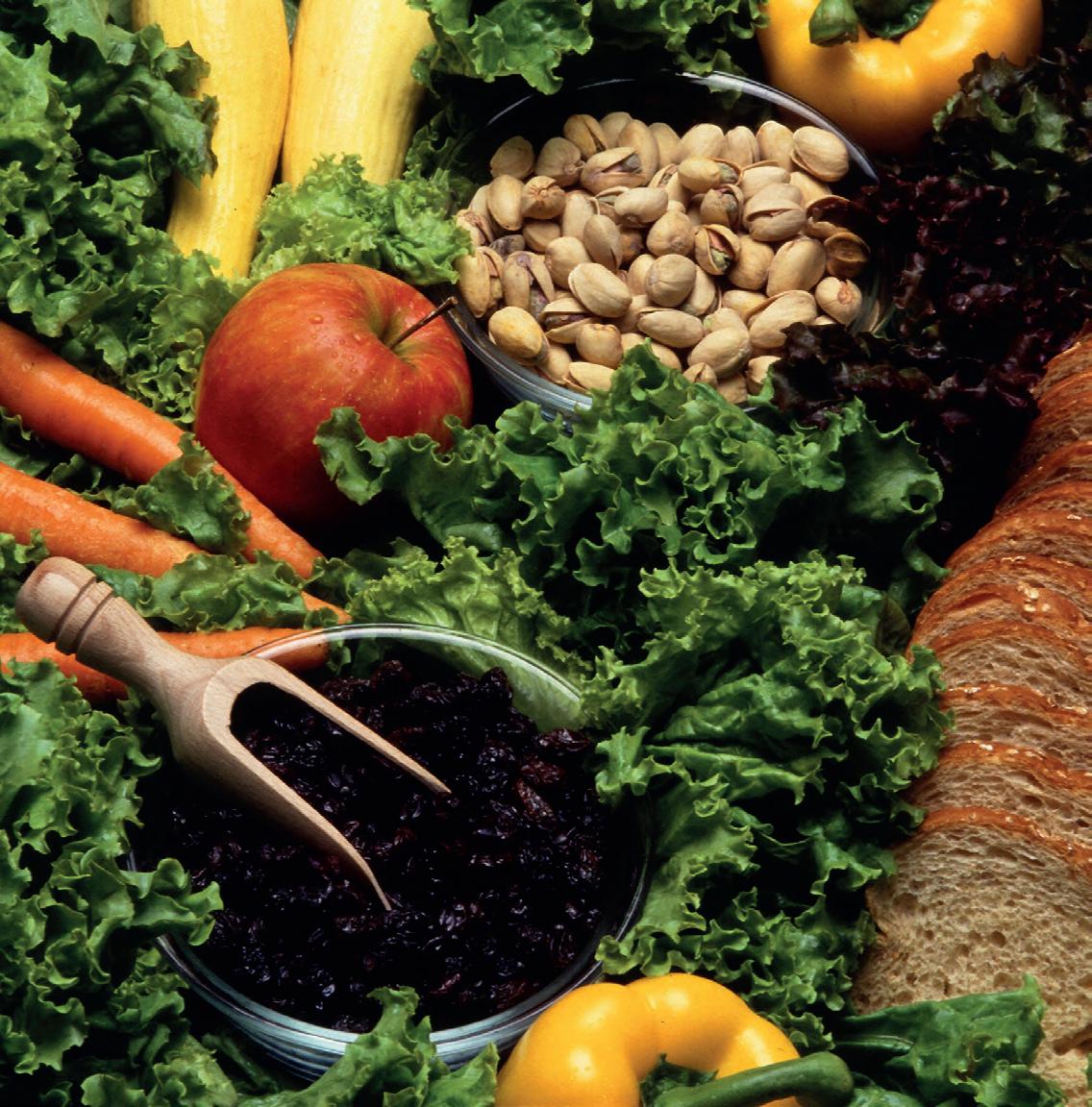
It is widely regarded as being better for the planet to consume less meat, but how valid are these claims? Is it just a trend?
It is well known that the mass production of meat, particularly beef, has a massive impact on the planet’s resources. This food group produces a huge amount of greenhouse gases and takes up a large volume of land; contributing to a great deal of environmental damage, but how much better is plant-based food for the environment?
“Nothing really compares to beef, lamb, pork, and dairy – these products are in a league of their own in the level of damage they typically do to the environment, on almost every environmental issue we track”, says Joseph Poore, a researcher at the University of Oxford who studies the environmental impacts of food. “It’s essential to be mindful about everything we consume: airtransported fruit and veg can create more greenhouse gas emissions per kilogram than poultry meat, for example.”
Our love for exotic fruits and vegetables may be causing more of a problem than we thought.
This is due to the import of out of season products like strawberries and blueberries. Even asparagus, a traditionally British vegetable, has a huge carbon footprint of 5.3 kg per kilo.
This was found to be the largest, of the 56 vegetables studied by Angelina Frankowska, who studies sustainability at the University of Manchester.
Therefore, when we consider our diet, we need to think about where our food has come from: has it flown miles by air? What resources are needed to grow it?
For example, to grow a single
avocado, it has been estimated to take anything from 140 litres to 272 litres of water.
These figures are alarming and suggest crops can have a considerable effect on the environment. Another reason to be vegan is the health benefits of plantbased protein sources, which come packaged with vitamins and fibre alongside healthy fats.
Previously, before veganism had made it into popular culture,
meat alternatives were something that had to be homemade or cooked at home after purchase.
Recently, many restaurants and fast food outlets have taken advantage of the rise in people choosing vegan options.
Now it is possible to go to most eateries and choose between multiple vegan dishes on offer.
But are they really healthier than meat? Experts, such as Dr Andrew
Freeman, believe that these vegan friendly meat alternatives are high in fat and very processed.
In reality, we should not be consuming them on a regular basis if we want to look after our longterm health.
So with this new information about the vegan diet, how can we make sure we remain healthy and still have minimal effect on the environment?
Should we return to meat consumption? No, not necessarily. When making any food choices we need to consider the whole picture.
Think, is it local? If not, what carbon footprint does it have?



Perhaps, consider buying fresh, in-season produce locally that isn’t packaged in plastic. Also, think about eliminating products which are known to be unfriendly to the environment, like palm oil, for example.
A great example of a shop in Norwich which is leading the way in planet-kind purchasing, is Ernie’s Zero Waste Shop on Magdalen Street. Whether you are vegan, vegetarian, pescatarian or eat meat, always shop planet friendly and limit your unhealthy processed food intake.
Science 25th Feburary 2019 18
“The current estimate for abandoned fishing nets in our oceans is 640,000 tonnes”
“There are less than 30 super tusker elephants left”
Lucy Burrows
Science Writer
“Adult male’s tusks are known to grow up to 18cm (7 inch) per year”
Photos:Wikimedia Commons
Photo: Unsplash
concrete-online.co.uk/category/science/
UEA on Ecosia: searching for change
Flynn Ames Science Writer
In October, a group of students started a movement called UEA on Ecosia; a campaign to get UEA to switch the default search engine across campus systems to Ecosia –the search engine that plants trees. The UEA movement has been
steadily making progress since October.
Since it was founded in 2009, Ecosia has used its profits from searches to plant over 84 million trees!
Trees are planted in deforested areas, where they are needed most by both biodiversity and local communities alike.
Ecosia only funds projects that actively employ and engage local communities, ensuring they benefit directly from tree planting initiatives.
These trees improve soil quality, provide shade and reduce soil erosion, helping support local livelihoods. Ecosia only plants native trees providing habitats and are best suited to support biodiversity in some of the most threatened and biodiverse ecosystems in the world. These trees are crucial in efforts to mitigate climate change
through the sequestration of carbon: a role that will become ever more important as time left to act decreases.
In April 2019, The University of East Anglia declared a climate and biodiversity emergency: https:// www.concrete-online.co.uk/ueadeclares-climate-biodiversityemergency. UEA Ecosia believes this would provide the university with the opportunity to make a huge difference, and they’d only have to make a small change.
Thousands of searches are made every day on campus by students and staff. On average, one in 45 searches with Ecosia will plant a tree; as a campus, our searches could plant thousands of trees every month.
Many universities have already made the switch such as Leeds, Sussex and Swansea, among others. The University of Sunderland switched to Ecosia in September and within two months financed the planting of over 6000 trees!
Each tree planted sequesters around 50kg of CO2 from the atmosphere during its lifetime. By switching to Ecosia, searches
on UEA campus would sequester hundreds of tonnes of CO2 each year, helping mitigate climate change. Meanwhile, trees planted by UEA searches would provide crucial habitats in some of the most
reported number of trees planted is accurate.
Ecosia have strict expectations of tree planting projects, to ensure that trees are counted in an accurate and professional manner.
With all this said, UEA can be confident that a switch to Ecosia would enact meaningful change. As a group, the UEA movement has been working to get UEA to make this change.
threatened areas in the world.
It might sound too good to be true, but Ecosia are actually a fully transparent company, publishing their financial and tree planting reports at the end of each month. These reports show Ecosia’s monthly revenue and exactly where trees have been planted. Ecosia are conservative with their tree counts, factoring in tree mortality rates so that they can be certain that the
In November, the SU voted to support UEA on Ecosia in lobbying the University to make the switch with an overwhelming majority. Since, the SU have helped them get in contact with UEA’s IT department who are keen on implementing the idea and will be working more with them in the future.



As a group, UEA Ecosia has their own link and collective tree counter. Despite just starting, it has already resulted in 39 trees being planted. With increasing help and support from students, UEA could be persuaded to make this switch and plant thousands of trees.
If you want to contribute, you can download Ecosia through this link: www.ecosia.com/UEA

The flight of the bumblebee
Olivia Johnson Science Writer
The Earth is currently undergoing the sixth mass extinction event –the most widespread and rapid global biodiversity crisis since the extinction of the dinosaurs.
A massive decline in bumblebees is now underway resulting from





our food, 35% of these crops are pollinated by birds, bees and bats. Without bees, humans wouldn’t be able to eat foods like apples, avocadoes, most leafy greens and many others.
There are crops like rice and wheat which do not require insect pollination, but our diet would be severely affected, as people can’t survive by eating bread and rice all their life!
The knock-on effect of the reduction in food production is the effect on animals.
Cattle used for milk rely on a diet of alfalfa and lupins, both of which rely on insect pollination by bees.
A fall in food supply for cattle will mean that meat and milk production will greatly reduce and again seriously affect the diets of humans. The effects of bees becoming extinct will be felt harshly in many areas.
based, again putting pressure on the environment. Not only that, but since most plants will suffer a
pesticides, parasites, disease, poor weather due to climate change, and other human involvement.
A new study has revealed that the number of bumblebees is currently decreasing at rates consistent with a mass extinction event. At this rate, bumblebees are on course to become extinct in only a few decades.
Bumblebees are vital pollinators in the natural environment and their decline poses a grave risk to the ability of humans and animals to be fed. Out of the 100 crop species that provide humans with 90% of
Effects will be observed not only in the environment but also in industry and the daily life of people.
Plants used to produce biofuels will not be pollinated as frequently, and the population may end up reliant on fossil fuels or other non-renewable sources of energy, pressuring the environment.
The production of clothing made from natural fibres will reduce due to their being less cotton plants growing and less animals to harvest the wool from.
There will be significantly less choice in clothing materials which may have to be chemical
reduction in growth, grasslands will become barren and large-scale desertification is likely to occur.
Freshwater will start drying up as there will be less trees for water retention.
The extinction of bees will be cataclysmic for our current way of life.
19 25th Feburary 2020
| @ConcreteUEA
Photo: Unsplash
“35% of crops are pollinated by birds, bees and bats”
“Cattle used for milk rely on a diet of alfalfa which are pollinated by bees”
Photos:Wikimedia Commons
“Each tree planted sequesters around 50 kg of carbon dioxide from the atmosphere”
Photo: UEA on ecoasia campiagn
The digital nomad dilemma
Sam Hewitson Travel Editor
Travel is often sacrificed in favour of work, money and stability, making it easy to fall into a repetitive cycle of continuous work with no play.
We need to work, we need the money, we need the travel. So why not combine all of the above?
Enter, the digital nomad. In the age of technology, more and more can be done with a laptop than ever before.
I am writing this in the UK, but who’s to say I couldn’t write this on Copacabana Beach?
All one needs is a laptop and a stable WiFi connection, and you are good to make yourself a fully nomadic earner.
through a business they have started, whether that be offering a service, creating a product or art, or simply doing a job they previously did domestically but instead working remotely.
Graphic design, writing, tutoring, website design, social media work are some of the careers and industries up for grabs here.
For years now I have followed YouTube accounts and blogs describing this life seemingly perfectly. These people have such a following and skill, that they can hop from country to country, while funding their trip with a few taps of a keyboard.
Kara and Nate, a personal favourite YouTube channel of mine, used savings to take off and travel for one year, to then return home and continue as ‘normal’.
A decision they made to record videos as they went was initially for the pure joy and the fun, but when their following increased, they could then begin to rely on the income they made to fund more travel, before deciding to keep going until they reached their goal of visiting 100 countries, a goal they achieved in December.
Now, that sounds like a dream, but getting to this level is often very idealistic.
Kara and Nate did not embark with the expectation they would hit a million subscribers, instead enjoying the travel for what it was with their side hobby being a manifestation of that travel.
The assumption that the digital nomad lifestyle will work out seamlessly and money will flow consistently is absurd, which is a stark reminder that anyone looking to pursue this lifestyle needs to heed.

Making this even harder is the over-saturation of industries where remote work is possible and easy.
So many people share this dream and dilemma that I just described, but the amount of jobs is not changing.
More to the point, as touched on earlier, when clients are obtained, there is no guarantee that the job intake will be constant.
One may go for six months with no work, meaning funds run dry and problems arise.
There is no way it can be predicted, so if you are a person who needs security, maybe have a rethink.
More to the point, the mental adjustments needing to be made to pursue this life and make it work are unparalleled. There needs to be a mental resilience to push through the tough times, problem solving will also be key, and a love for what you do is absolutely essential.
My answer would be to build a base back home, wherever that may be.
This is yet another example of the age-old cyclical dilemma of finding work without having worked.
As a passionate writer, I would love to go freelance and work abroad, but I cannot do that without clients.
How do I get clients? By doing work and having experience. How do I get experience?



Clients. Infuriating, I know. This cycle is very hard to break.
Of course, travel is great, but falling into a field of work purely for the sake of having this opportunity is a bad idea.
This could be a career that supports you for multiple years, and you would not stick at a job you hated unless there was no other choice, so the same applies when on the road.
How, then, does one break into the nomadic life and live under the sun for the rest of their days?
Build clientele and then, once income is more guaranteed, book the ticket. The whimsical lifestyle I am describing is very easily fixated on, and reckless and misinformed decisions can be made.
What happens if you can’t find work? What happens if you run out of money?
I would be the first to tell you how amazing this lifestyle sounds, but it obviously comes with a strong overwhelming insecurity and risk.
Sure, it seems great, but it comes with so many risks that in my mind, counteract the gains.
I suggest a hefty pros and cons list before any decisions are made, because this lifestyle is not for everyone.
Travel 25th February 2020 20
Most digital nomads operate
“Who's to say I couldn't write this on Copacabana Beach?”
“One may go for six months with no work, meaning funds run dry”
“There needs to be a mental resilience to push through the tough times”
Photo: Unsplash
Settling the score: all inclusive vs booking alone
Leia Butler
Unlimited food, unlimited snacks, unlimited drinks, and unlimited freedom- what’s not to love about all-inclusive holidays?
I think the value for money is brilliant, on the amount you’d be spending on alcohol alone.
Of course, you do trade a little bit of quality sometimes, but if you do your research right and pick a lovely resort, you won’t have to worry.
One of the best things about having all your food and drink taken care of, is that you have more time to plan other activities and don’t have to worry about all you are going to eat for the meals and where you are going to go.
When I was younger, we used to go on all-inclusive trips as a family.
It was all we knew, until my parents decided to organise everything ourselves.
Navigating my new home and life in Malta
Roo Pitt Travel Writer
As a student, I do tend to gravitate more towards allinclusive holidays purely because I know that everything is paid for. If I am travelling to a new place where I won’t be sure of the prices and how much money to bring, I’d rather have everything wrapped up in a neat little bow without having to worry about if I have enough money with me and the stress of budgeting abroad.
I went on an all-inclusive holiday in 2019 and have one booked again for 2020.
The thing I love most about them is there isn’t a need for any kind of restriction.
You can have another plate of food if you didn’t like the




on the sort of person you are.
I have to be in control a lot of my day to do life, and so when I’m on holiday, I like to relax knowing everything is taken care of for me.
They’ll get a cut for taking you there.
Sure, it’s a win-win if it’s a nice place, but you’d only be wasting your time if you’re stuck in a chain souvenir shop for an hour.
More often than not, all-inclusive
Bongu [hello]! Since my last article, I have arrived on the beautiful island of Malta, and over the last few weeks I have been trying to settle into the island life and learn how to navigate my semester abroad.
original one, you can have another drink if you want one, and you don’t have to worry about any extra costs.
Plus the unlimited alcohol is a massive bonus.
There are some elements of allinclusive that I do think are negative and dangerous, as encouraging indulgence can be harmful, but that is where self-control does come in.
If you do struggle with an addictive personality, I wouldn’t recommend all-inclusive holidays, but if you are someone who has a good level of self-control, they are perfect.
I love the choice, the freedom, and the relaxation elements that come with an all-inclusive holiday.
That trip was such a success and we’ve never gone back to traveling through all-inclusive packages. The appeal of all-inclusive packages is when tours that seem really cheap. However, booking online and organising your own trip usually works out cheaper. For example, online comparison sites make it easy to find low-cost flights. With a little research, and finding dates with cheaper options, you can easily save hundreds of pounds. Most travel agents, on the other hand, cannot and do not bother to purchase discounted flights, as they must buy in bulk and adhere to set trip dates. Moreover, they often have to pay various commissions to drivers, tour guides, etc, which are added to your cost. When booking alone, you can tailor the trip to your own personal interests. Travel agents often take you to restaurants or shops that they have prior agreements with.
packages also have touristic itineraries, which means you only get to visit mainstream spots that everybody else has been to.
Of course, this isn’t always a bad thing, but organising your own trip lets you be spontaneous and explore off-thebeaten paths. It certainly won’t limit your travel experience.
It can be frustrating to be restricted by a fixed itinerary, especially for more adventurous and spontaneous people.
There’s also more opportunity to interact with the locals when you’re not travelling with an agency.
Lastly, tours and travel agencies will try to cram too many places in too little time. This forces you to travel quickly, and to see rather than experience places.
We all like taking photos when we visit a new place, but surely
So much has happened already, Brexit for one (thankfully though nothing has changed yet)! I’ve started lectures, and made it through the orientation period, and I will be moving soon so I can begin to settle properly.
I thought I would keep this article on the theme of trying to navigate somewhere completely new, beyond the literal meaning. So, in the sense of finding my place within this community as an international student (a role previously foreign to me) how to navigate the ‘social norms’, food, drink, and a whole new campus and way of teaching/studying.

All this forms part of coping with the initial culture shock of arriving in a new country.
For me, the moment my plane dipped below the clouds to land at Malta’s international airport in Luqa, it dawned on me that I was landing in this country and would likely not return to the UK until July.
In terms of social norms and navigating conversation, the only reason anyone appears to know where or what a Norwich is, is if they follow football and therefore know NCFC, or at least one of their national players who have played there.
Within the first few moments of conversation with any new person (usually following the ‘where are you from’ segment), Brexit is immediately the topic of conversation, usually out of genuine curiosity. Thankfully there was a campus tour, and I feel I have taken for granted how well I know UEA now, and how confusing a new campus can be.
Luckily all of our teaching takes place in the relevant faculty building.
Another huge difference, is that here are only a very small handful of ‘student associations’, most of which are academically focused, a stark contrast to the 250+ societies at UEA.
This provided a new challenge for me, as I have been active in many societies and clubs at UEA and this is where I made friends and really settled into university life.
not if that’s the only thing we do.
It’s important to take the time to explore the history and details of each place. Rest assured, you’ll get this better when booking alone.
All in all, booking alone is simply more rewarding. There’s nothing like keeping a list of things you want to do, researching them, hunting for great deals and then ticking off the list as your trip goes as smoothly (or not) as your plan.
There is a strong Erasmus Students Network (ESN), which provides many opportunities for international students, and arranges club nights/parties and occasionally hikes and sporting opportunities. Luckily, I enjoy most sports and being active, so I have been able to connect with other students through ESN who like playing pool, and have found a touch rugby team made up of overseas visitors.

25th February 2020 21 concrete-online.co.uk/category/travel/ | @ConcreteUEA
Travel Writer
“You can tailor the trip to your own personal interests”
“I'd rather have everything wrapped up in a neat little bow”
Erica Thajeb Travel Writer
“There isn't a need for any kind of restriction”
Photo: Unsplash
“Booking online and organising your own trip usually works out cheaper”
“I like to relax knowing everything is taken care of for me”
UEA Swimming reach finals at BUCS long course
Record number of medals for UEA at BUCS
Jamie Hose Sport Editor
UEA sent seven of its sports teams off to compete in Sheffield over the weekend of the 15 February.
Students represented the university in BUCS Nationals for Athletics, Badminton, Climbing, Fencing, Judo, Karate and Swimming.
The various teams won five medals across all the sports, which pitted them against the country’s best young athletes.
Elliot Dronfield took a bronze medal in the Under 75kg Karate; Prince Reid took a bronze in the Ambulant LJ; Pedro Antunes came third in the Under 55kg Judo; Jordann French also came third in the Under 66kg Judo, Kyu Grade, and Athena Yu took bronze in Karate, fighting in the Intermediate Individual Kata category.
The weekend was a record-
breaking turn in UEA’s sporting fortunes, this being the largest medal haul in the university’s history at BUCS. Many more athletes made it through to the respective finals for their events.
Three of UEA’s fencers made it into the final 32: Charlotte Slater (Epee), Kiron Austin (Foil) and Tin Chen (Sabre). Prince Reid came in fourth in the Ambulant 60m, and in the long jump, Nathan Protheroe made the final. Both Hannah Brown and Lucy Hope made the semi-finals in the 400m and 200m respectively.
The teams have been congratulated by UEA Sport on their performances.
Towards the end of this month, BUCS will take a turn towards some more extreme sports, with the Snowsports scheduled to take place on the 26th in Milton Keynes, and with the Sailing Team Racing due to take place from February 29 until March 1.
UEA beat Yarmouth to win semi final
 Oli Povey Sport Writer
Oli Povey Sport Writer
he hopes that the team’s improving results will garner them more attention from the university.
UEA Swimming Club improved upon last year’s performance at BUCS Nationals, attracting more attention from UEA Sport.

All of the club’s relay teams made their respective finals, building upon the achievements of the team sent off to BUCS shortcourse last semester.
Liv Neale made the final of the women’s 200m Backstroke, and Rikke Nagell-Kleven made the final of the women’s 200m IM.
The team finished ranked 23rd, improving from their position in 24th place last year. The weekend stands as a continuation of the team’s improving results, following their position ranked 29th in the short-course championships, up from 32nd the previous year.
The President, Ben Friar, says
“UEA Sport were also very impressed with how the team performed over the weekend and they seemed to be giving us more attention than they have before,
incredible freestyle swims in his individual and relay efforts whilst Lauren swam well in her individual events, and stepped up to do the Fly in the Medley relay final.
“I am immensely proud of everyone who swam. You all showed some real class over the weekend. Massive well done to you all.”
UEA Swimming Club will be sending a selection of swimmers from its development and competition squads off to compete in Manchester later in March, for the Quest for the Crest competition.
The main body of the team now begins training in preparation for BUCS Teams in May, which will only feature relay races.
UEA Football can look forward to a cup final at Carrow Road after beating Great Yarmouth on penalties after a thrilling 2-2 draw.
Despite crafting the opening chances, UEA fell behind from a headed free-kick 15 minutes in: the right-back nodding in unmarked.
The reaction was swift, but a large shout for a UEA penalty was denied, and Sziemenczuk was booked for diving.
They kept pushing and the equalizer came as a Josh Pond free kick was pushed in at the back post by Luke Young.
Immediately, Yarmouth went ahead again as the defensive frailties from set-pieces continued.
But the standout moment from the game was a 30-yard screamer from UEA winger, Mo Hassan. Picking up the ball in midfield and shifting the ball on to his right foot, he curled the ball into the left top corner and left the keeper rooted to the spot.
After the whirlwind first half, both teams dug in and a more tactical game developed. Dominated by half-chances, by the 70th minute, both teams were playing for extra-time.
UEA started brightly in the overtime, with Hassan forcing another save out of the resolute Yarmouth keeper. The best chance came as the Yarmouth winger was brought down in the UEA box in what was almost certainly a penalty.
which is a credit to how far the team has improved over the last few years,” Friar said.
Sean Watson and Lauren Nelson were voted the team’s swimmers of the weekend.
Friar said, “Sean had some

“Hopefully we can now keep the momentum going up until BUCS teams our final competition of the year, in which we will be competing in the higher division for the first time since gaining promotion last year,” Friar said.
A corner from the left was headed in once again by the rightback, and the U’s were chasing the game again.
After the goal, Yarmouth sat back and invited pressure on themselves.
Young had another chance on the turn, but his shot was saved and held by the Yarmouth Keeper.
The referee, however, thought otherwise and the U’s were very fortunate to stay at 2-2.
Like the quarter final two weeks ago, the game went to penalties.
Going to sudden death, after a particularly poor fourth penalty for Yarmouth, Pond stepped up to bury the final spot kick and send the travelling fans wild.
The final is due to be played at Carrow Road on March 23.
Sport 25th February 2020 22
Jamie Hose
Sport Editor
“UEA Sport were also very impressed with how the team performed”
Photo: Oli Povey
Photo: UEA Swimming Club
Pole Fitness South East Regionals see UEA ranked 7th
Bethan Reid
Writer
Pole fitness had their first competition of the year at the Inter University Pole Dancing Competition (IUPDC) South East Regionals on the 8th February in London, hosted by King’s College London.
UEA sent off a great team, with Joe Loftus for beginners, Hana Inal for intermediate, Diana Priimak for advanced, Rosa Hopper, Will Hodder, Elizabeth Ward, Lottie Dyce and Ciara Bright.

Joe did extremely well in beginners, placing 5th having only had 5 days to prepare his routine, after an injury unfortunately meant that Summer Rosonovski could no longer compete.
UEA ranked 7th overall with beginner, advanced and group categories all making it to 5th.
All of the performances were incredible to watch, but it was a tough competition and King’s College London won, with Cambridge as the runners up.
Competing for the team was amazing, as was observing the other competitors. I can’t wait to experience it again!
The second competition this year will be one the UEA team has
created itself.
It’s going to be an interuniversity friendly competition (called the ‘Scorpio Competition’) hosted in Congregation Hall 01.19, on the 7th march!
This will be its first year, and preparations are well and truly underway, to the team’s great excitement.


East Anglia will be welcoming Northampton, Anglia Ruskin and Hertfordshire.
The competition will be running with the same category system as IUPDC: beginners, intermediate, advanced, and group, but there will be up to 3 competitors in each category and up to 6 members in a group.
The UEA team cannot wait to see what the other universities have to offer to match their own performance, which the competitors are now hard at work practising.
We have managed to catch bits of the routines, while they’ve been training and practising, and they’re looking very good.
The day will start at 9am for registration for competitors and spectators, in order to be ready for the competition to kick off at 10.
UEA’s competition squad, the Scorpios, loved competing at IUPDC and cannot wait for the 7 March when they get to compete right here in Norwich on home turf.
Is there a toxic element in the football fanbase?
Marco Rizzo Sport Writer
A big part of the football experience is the fans, whether it is at the stadium or the pub, watching the game with people that share the same passion for the sport has always been a staple of the beautiful game.
However, multiple reports of aggressive, abusive and racist conduct from the most extreme sections of the fans have been letting the game down.
From players being hit by objects thrown by the crowd in Manchester, to fans hitting horses and performing Fascist gestures in Glasgow, late 2019 saw a sudden increase in reports of aggressive behaviour by football fans, both in and out of stadiums.
While the incidents do not compare to ones from the ‘Golden Age’ of Hooliganism in the 1980s, this bad behaviour still appears as
a problem which must be tackled, compounded by the issue of racism in football rearing its ugly head.
As an Italian football fan, this hits extremely close to home as most of the reports for racist behaviour seem to be coming from the Serie
issues.
It is good to see multiple leagues around the world trying to combat this plague with active campaigns, ‘No Room for Racism’ being the Premier League initiative to tackle the issue with other abroad leagues following suit.
Football leagues and teams now need to draw a clear line when it comes to abusive behaviour in the sport: there is a difference between showing support for your team, and demoralising the opposing side and abusing players and fans, both verbally and physically.
A, with racist abuse (and the lack of disciplinary measures against it), appearing as the main issue tainting the Italian league.
Players such as Romelu Lukaku and Mario Balotelli are just the high-profile cases of racial abuse this season, with many players in smaller leagues both in Italy and abroad suffering from the same
While we have seen leagues taking steps in the right direction with educational campaigns and with closed-door games, we have not seen enough from clubs.
They should be looking to more efficiently identify offenders, as well as better organising with other clubs to standardise punishments, while at the same time offering room for individuals to come back in the future and show their improvement.
23 25th February 2020 concrete-online.co.uk/category/sport/ | @Concrete_UEA
Sport
“The most extreme sections of the fans have been letting the game down”
Photo: UEA Pole Fitness Club
Photo: Needpix
Sport
What can English football learn from the Americans?
Luke Saward
Senior Writer

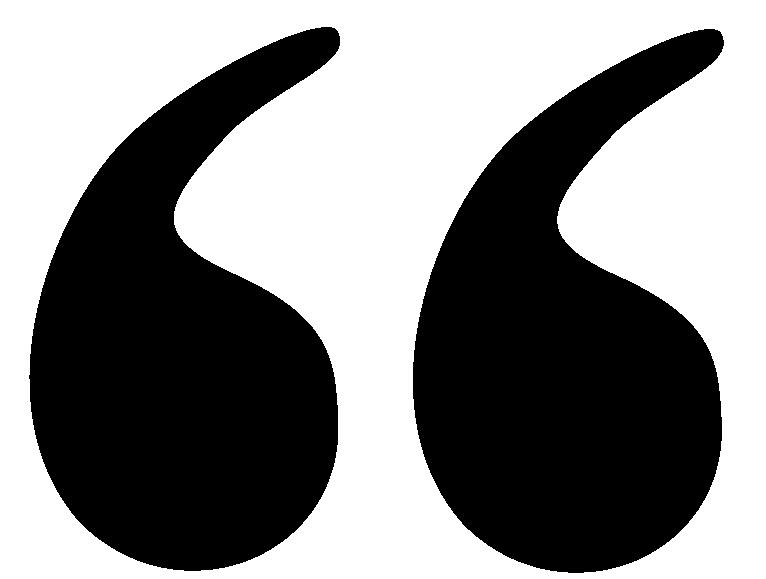
Team LeBron 157-155 Team Giannis was the score of the NBA’s All-Star game last Sunday.
The annual weekend event is nothing short of a sporting spectacle, yet it remains unparalleled by any such competition in the world of football.
The dunk contest, the 3-point tournament and the skills challenge all serve to showcase the talents of those at the summit of basketball.
Surely watching De Bruyne and Neves compete to deliver top bins in a free kick challenge or hit the crossbar would delight many Premier League fans, myself included.
Is anyone faster than Adama, or better at heading than Van Dijk? Who would win in a league-wide tournament of Wembley singles?
These are the competitions that an All-Star Premier League weekend could answer; theoretical scenarios that would leave many spectators salivating.
Why then, has this not occurred?
One of the foremost arguments used is due to the increased demands it would put on the already arguably over-stretched players.
Unlike most foreign sides, Premier League teams can play up to 60 games in a single season.
As such, the appetite of Susanna Dinnage, the new Chief Executive of the Premier League, to add to this, may not be so great – especially
since a winter break has just been introduced to combat this very issue.
However, my proposal would include scrapping FA Cup replays, likely decreasing the net playing time of stars.
Seemingly, the only complaints that this would cause would be from small, low-league sides, who receive vast revenue when they travel to face a top division giant.
4,000-capacity stadium is a sight that I would miss, but I do not entertain the argument that it denies locals the opportunity to see big players performing.
All those who buy tickets to see their team know that the huge games are almost impossible to get without overpaying or having a season ticket.
As a result, those few thousand home fans in the ground are almost certainly comprised of the same committed individuals who would travel to a Premier League away day.
There is recent precedent for such changes, with extra-time scrapped for all rounds in the Carabao Cup – except the final –and the away goal rule ditched from the semi-final, with level ties going straight to penalties.
in football – not getting into the debacle that is VAR – can actually make the game better.
The new format of the NBA AllStar game saw each quarter serve as a mini-game, in which the victorious team earned a donation to their chosen charity.
The same could be applied to a half of football, with the charitable
Another NBA alteration, albeit one that was made a few years earlier, deals with the practicality issues that could arise in translating an All-Star game to Premier League football.
For many, including Romelu Lukaku in his infamous tweet on the matter, the match would be for the bragging rights of the country’s perennial north-versus-south divide, much like the NFL Pro Bowl (which pits the NFC against the AFC).
However, while a recent survey showed people are much more likely to assign the Midlands to the North than the South, the majority said that they were part of neither (including the Midlanders themselves).
This could in turn be resolved if, in the 3rd, 4th and 5th round, any Premier League side is allocated to play a side from League One or lower, they are automatically drawn at home.
Now, this is more than merely a format change, as it could be debated to be unfair and therefore, I feel that all the 20 Premier League and 72 EFL clubs should be allowed to vote on it.
However, with costly injuries avoided for big clubs and revenue guaranteed for smaller clubs, I believe that this proposition would have a good chance of being passed.
Admittedly, the sight of seeing Son dribble around defenders in a
If the same was done for all FA Cup rounds preceding the quarter final stage, player injuries and fatigue would be reduced and there would be a greater chance, in theory, of historic cup upsets, for penalties are far less predictable in their outcome.
Consequently, the games would likely also be played at a higher pace, with less stamina management occurring, with teams fighting hard to avoid penalties, without the safety back-up of extra-time or a replay leg.

To purists who do not want their traditional domestic cup format to be meddled with, I would use the Nations League (which replaced some international friendlies) to illustrate that certain changes
element encouraging players to put everything into the game.
It certainly worked in the NBA, with both teams clearly wanting the win, finishing the game with 4 of their 5 starters on the court.
The All-Star MVP, alongside the regular season award, is coveted in the basketball community and surely individuals like Bernardo would relish the opportunity to claim a trophy that shows that he is the league’s best.
These aforementioned donations could be put into grassroots football, with the other revenue generated divided amongst the teams without a representative in the All-Star game, to give them a greater opportunity to achieve representation in future years, avoiding repeat dominance from the ‘big 6’.
Therefore, allocation of teams such as Wolves and Aston Villa would prove challenging.
The new NBA format where the 2 players with the most votes are team captains and choose their players, much like you would tend to do down the park with your mates, tackles this issue.
This would result in the enticing prospect of teammates lining up against one another in a true battle of the very best.
Admittedly, with football bigger globally than the NFL and the NBA put together, such changes are more desired than needed.
However, an All-Star weekend would both be easy and quick to implement, not requiring significant change to the footballing calendar. One could and should be introduced.
25th February 2020 24
“It certainly worked in the NBA”
Sport
“The games would... be played at a higher pace, with less stamina
Photo: Pexels

 Chris Matthews Editor-in-Chief
Chris Matthews Editor-in-Chief








































 William Warnes Global Editor
William Warnes Global Editor

































 Oli Povey Sport Writer
Oli Povey Sport Writer






